Hello and welcome to Work Week, the podcast where we tackle one big question about the rapidly evolving workplace each week, explore what the research says about the issue, and explain what it all means for you.
I’m Dr. Kelly Monahan, Managing Director of The Upwork Research Institute—and what you’re hearing is a digital proxy of my voice that was created by our team with the help of AI. On each episode of Work Week, we help you make sense of the seismic shifts transforming the world of work and equip you with research-backed insights you can act on.
This week’s topic is becoming increasingly urgent for leaders, managers, and workers alike: How can you and your workforce learn how to learn amid AI disruption?
Let’s start with a snapshot of where we are today.
Artificial intelligence is rapidly changing the way we work. Some tasks are being automated, decision-making is being enhanced, the half-life of technical skills is shrinking, and job functions are being reshaped in real time. But even given this technological revolution, something very human is rising to the surface.
What we’re finding is that, more than new skills, workers also need guidance. They need help navigating the complex changes that AI is churning up. They need help adapting to new tools that are constantly updating. And they need help building the confidence to keep going amid all this uncertainty and change. Because of this, human coaching and career development are essential to your AI skilling strategy.
According to our 2025 In-Demand Skills Report, career coaching, training, and development are among the fastest-growing skills on Upwork. This is a powerful signal. Amid all the focus on and discussion surrounding AI tools, the real investment is happening in the people who help others grow.
But why is coaching having such a moment now?
Let’s unpack what the data tells us—and what it means for the future of work.
Our research reveals a compelling trend: the more that automation scales across industries, the more likely workers are to seek out human-centered guidance. The demand we’re seeing for career coaching, training, and development skills shows that human guidance is more than a “nice-to-have” benefit; it’s a strategic necessity for organizations.
According to a survey of one thousand two hundred fifty C-suite leaders we conducted in 2024, in the 12 months leading up to the survey, thirty-five percent of leaders required team members to expand their skillsets in addition to performing their day-to-day work. However, effective reskilling or upskilling is not only about learning more skills—it’s also about learning how to learn, adapt, and thrive in ambiguity.
Why? Because AI is not replacing jobs entirely. It’s reshaping them, task by task, in ways that are hard to predict. Research from Anthropic shows that only about four percent of jobs currently use AI for at least seventy-five percent of tasks. However, thirty-six percent of occupations use AI for at least twenty-five percent of their tasks. And these numbers are only expected to grow.
The transitions workers are having to make to manage these new technologies are raising existential questions. Confronting this broader identity shift, workers are asking themselves, “Who am I if AI can now perform the job I was trained to do?”
Organizations are rightly focused on building technical capabilities—such as AI fluency, prompt engineering, and automation integration. However, fixating on these hard skills risks overlooking one of the most powerful and sought after tools available: coaching that builds confidence, resilience, and adaptability. When done well, the upshot of this kind of learning is a team that is more anti-fragile.
In an era increasingly defined by artificial intelligence, human intelligence—and more specifically, emotional intelligence—is proving to be the true differentiator.
While AI-powered coaching platforms and chatbots are available, skilled human coaches provide what no algorithm can: empathy, perspective, and personalized feedback rooted in lived experience. These skills help workers confront their fears, make sense of change, and move forward with a sense of purpose.
From a coaching and development perspective, we’re already in an era of information overload. Workers need more than content. They need context. They need someone to say: “Here’s how this applies to you. Here’s where you might get stuck. And here’s how we’ll get through it.”
That’s the role of an effective, human coach.
In fact, you could think of coaching as a workforce stabilizer. When things are moving fast and structures and priorities are shifting, people need steady touchpoints. Coaching provides continuity, clarity, and often hope as workers navigate ongoing disruption.
Let’s zoom out for a moment. What does all this mean for business leaders?
It means that coaching is no longer optional. It’s a strategic imperative.
Too often, companies treat coaching as an executive perk. Coaching may be reserved for the C-suite or high-potential talent. But in a volatile world, the need for guidance is universal.
The leaders of tomorrow will be those who democratize access to coaching across their workforce. Coaching resources often include these four pillars:
First, on-demand access to professional coaches for employees at all levels.
Second, peer coaching programs that create a culture of shared learning.
Third, access to skill-building platforms that integrate coaching into the learning journey.
And finally, manager enablement that trains supervisors to act as effective coaches themselves.
And that last pillar, manager enablement—essentially coaching managers how to coach—is critical to an effective coaching culture. However, despite the importance, according to a survey by Betterworks of two thousand twenty-nine full-time workers, only fifty four percent of managers surveyed felt confident coaching for career development.
So why does democratizing coaching across your organization matter?
Because coaching drives performance. According to research from the International Coaching Federation, eighty six percent of companies report a positive ROI on coaching engagements. And the ROI isn’t just in dollars—it’s in culture. Coached employees are more motivated to stay with, grow in, and advocate for your company.
In short: Coaching isn’t just about supporting workers. It's about giving your people the engine of workforce agility and corporate antifragility. It’s about teaching them to learn how to learn.
When business leaders talk about reskilling, they often focus on what to learn—data analytics, cloud computing, cybersecurity. But the more important question is how we’re preparing people to continually adapt.
That is a key gap in the modern era of AI-driven instability. Great coaches don’t hand out easy solutions. They help workers develop the self-awareness and cognitive flexibility to continue learning, even as the landscape keeps shifting.
Let me say that again: In a world where business needs shift quickly, the most important skill is the ability to continually learn, unlearn, and re-learn.
And this requires more than online modules, self-paced videos, or feedback from a chatbot. Effective coaching requires real-time, relational guidance. Because coaching is about more than competence—it’s about confidence.
Confidence is contagious. When teams feel empowered to learn and grow, they experiment more. They collaborate better. They innovate faster.
This is where human coaching can make all the difference in an AI world.
I want to wrap up this week’s episode as I always do—by sharing an action you can take immediately to address the challenge at hand, as well as a question to reflect on that might just bring about a mindset shift.
Here’s your action item for the week: Start building a culture of human coaching at your organization.
You don’t have to roll out a massive coaching program overnight. You can start small, first by inviting department leads to host office hours or schedule lunch-and-learns for skill-sharing.
If possible, you can offer coaching stipends or reimbursements to team members.
As the program takes root, you can promote internal growth and mobility by pairing employees directly with mentors or coaches.
And finally, coach managers on how to coach. You should encourage feedback loops in performance reviews that go beyond metrics to include coaching and growth conversations.
And for our weekly reflection question, ask yourself What if coaching isn’t just for development—but for survival?
Think about the pace of change your business has been experiencing. Entire industries are being redefined. Traditional career paths are dissolving. The social contract between employer and employee is under pressure.
In this environment, coaching is the infrastructure that holds people above the churn. It’s a bridge that gives structure to human connections, and enables learning, growth, and resilience to happen amid the chaos.
If you’re listening to this while navigating your own career transition in the midst of AI-driven change—consider this your affirmation:
You don’t have to go it alone. There is strength in seeking human support and guidance. Growth is not a solo sport.
Whether it’s through a formal coach, a trusted peer, or a community of learners—you deserve and can benefit from human guidance. The future of work belongs to those who keep growing. And coaching is the catalyst.
That’s it for today’s episode of Work Week! I’m Kelly Monahan and this week, we asked what the missing ingredient is in your AI skilling strategy. We found that, for many, the answer is not more technology, but more humanity through human guidance and coaching.
Thank you for joining me. If this episode sparked something in you, share it with a friend or colleague. And if you haven’t already, subscribe to Work Week for more data-backed insights on how to lead and thrive in the future of work.
We hope you’ll join us next week, when we’ll continue our discussion about the ongoing importance of human-centric skills. We’ll look at how soft skills can be your organization’s competitive advantage in a period of massive technological uplift.







.png)
.png)
.png)
.png)
.png)
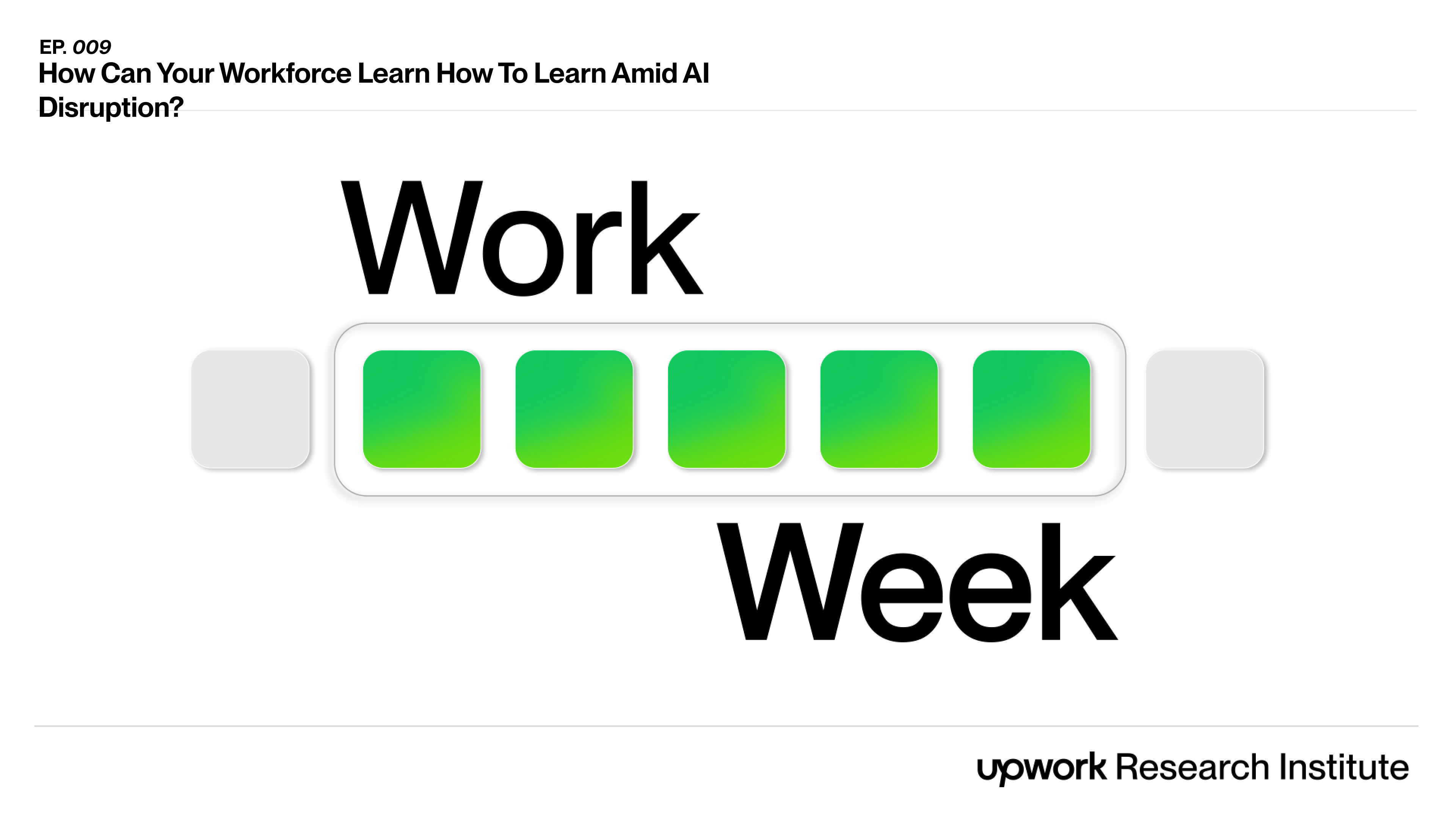


.png)

-p-500.jpg.png)

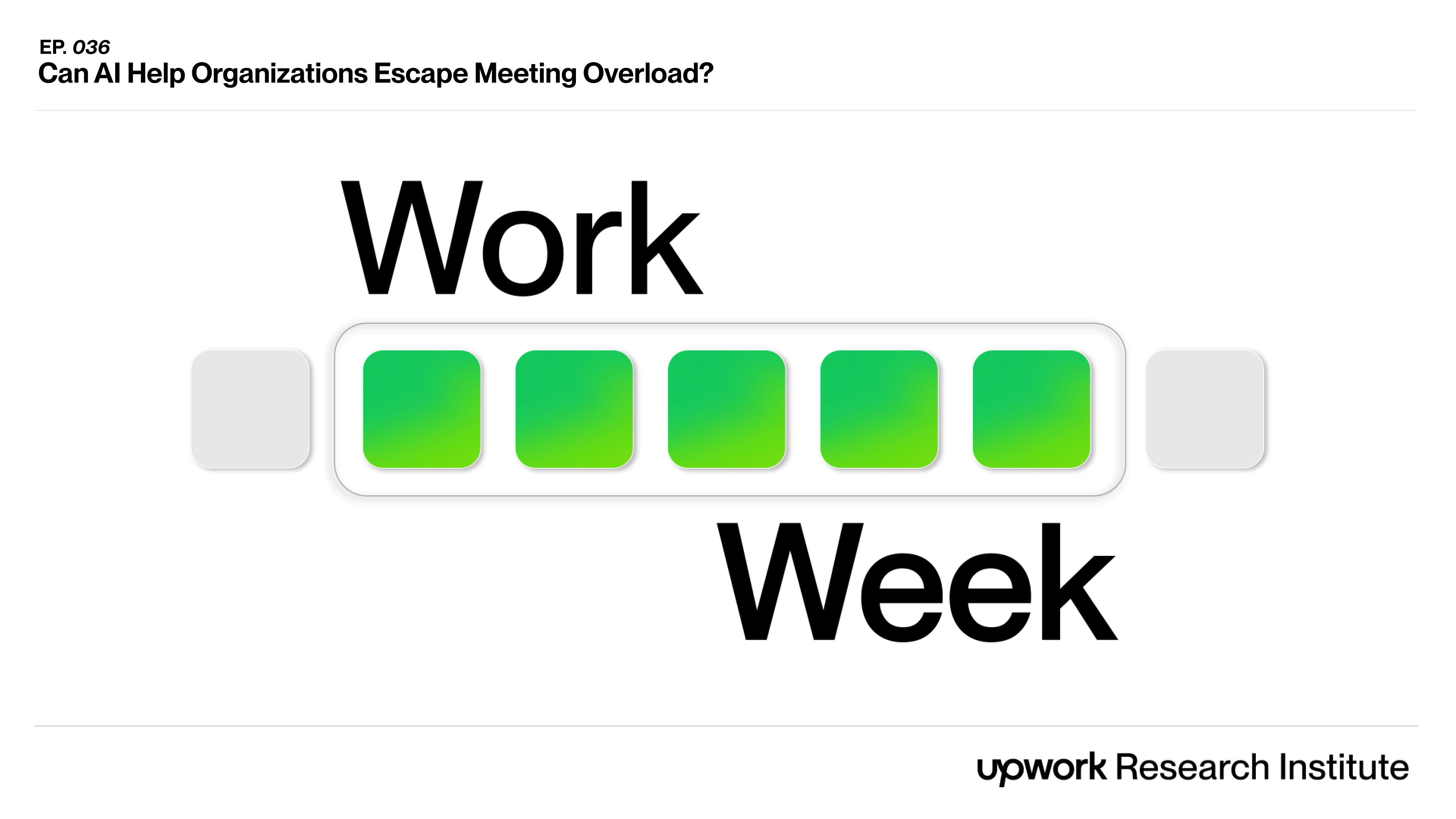

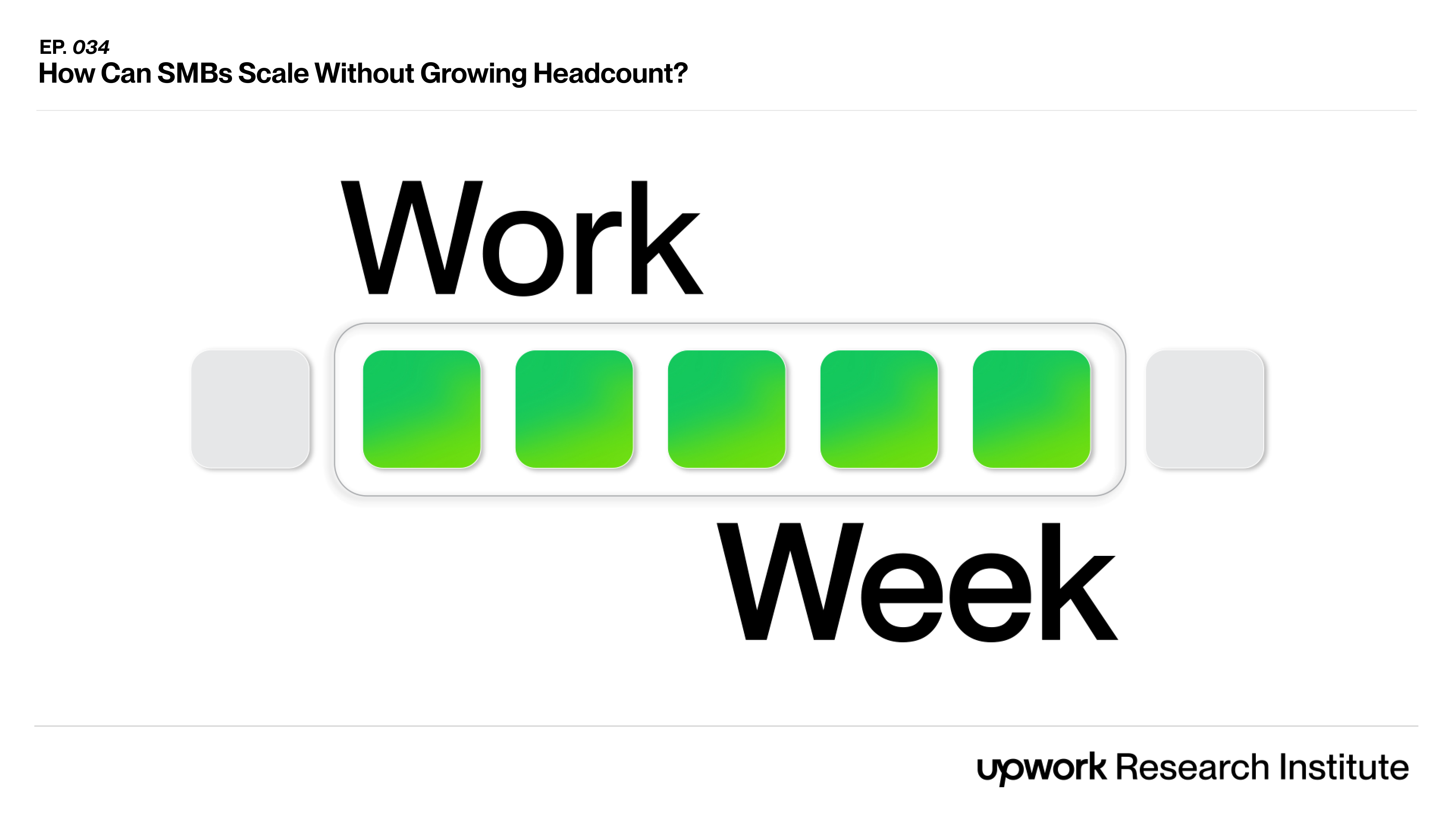
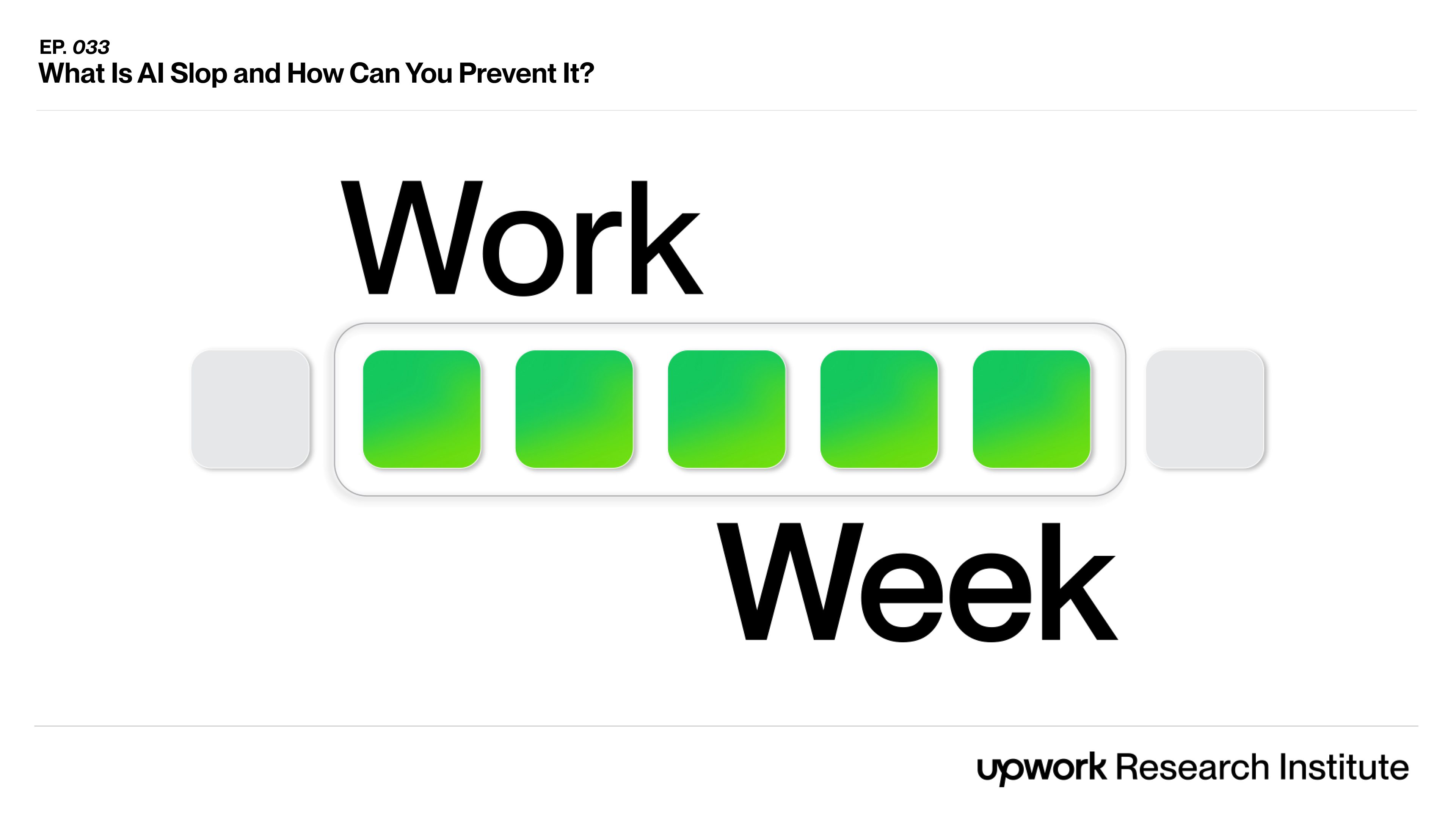
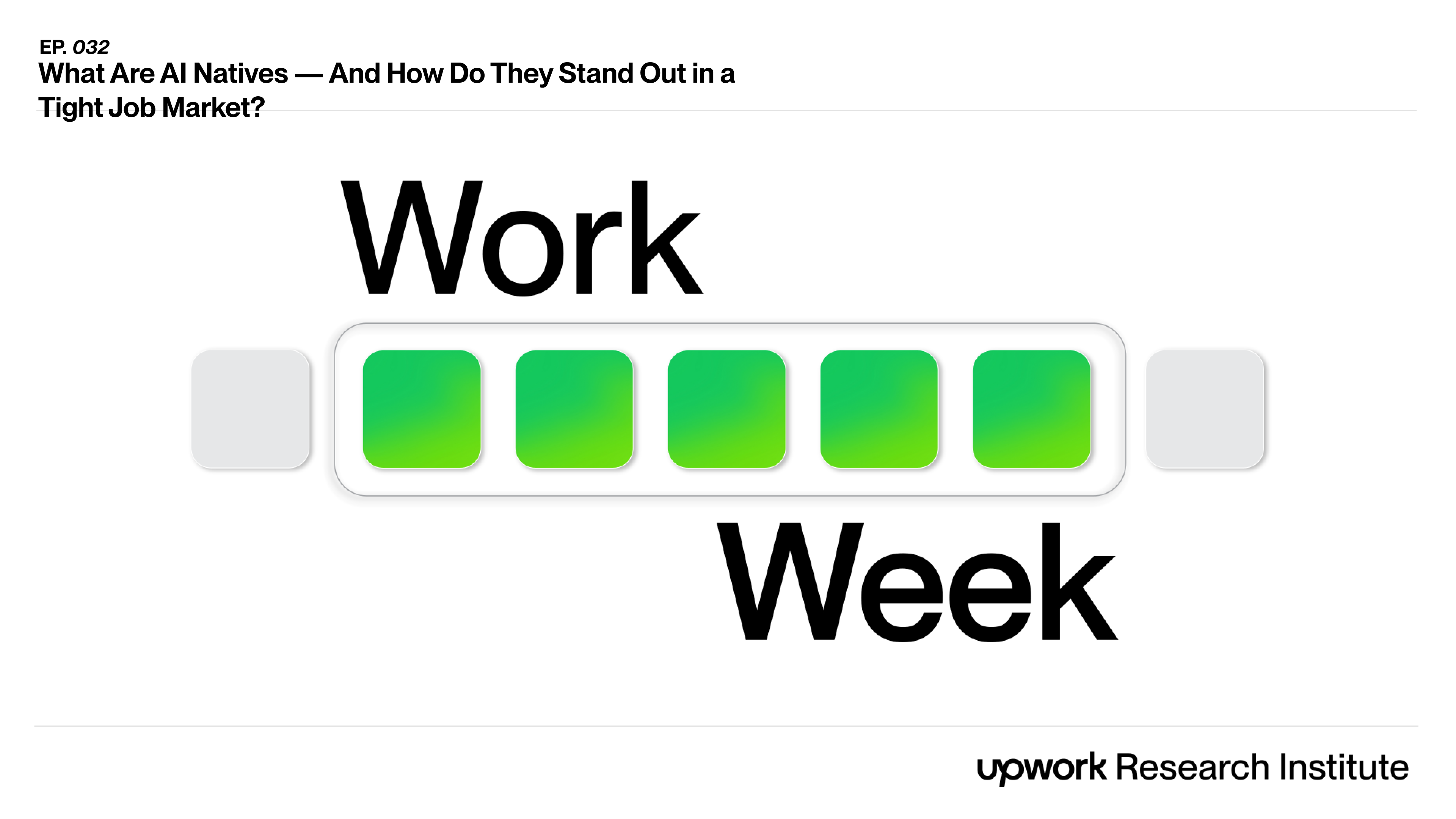
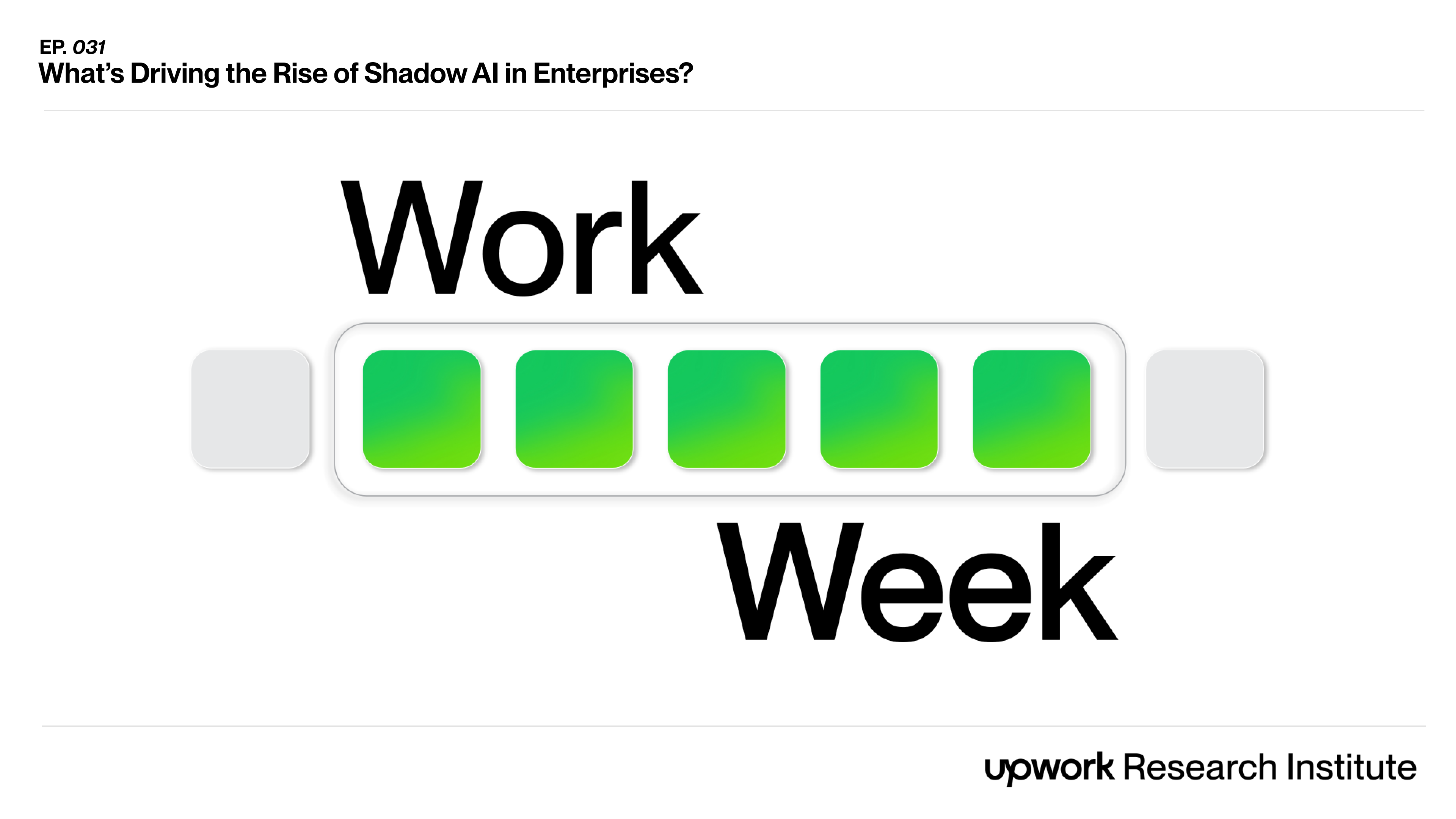
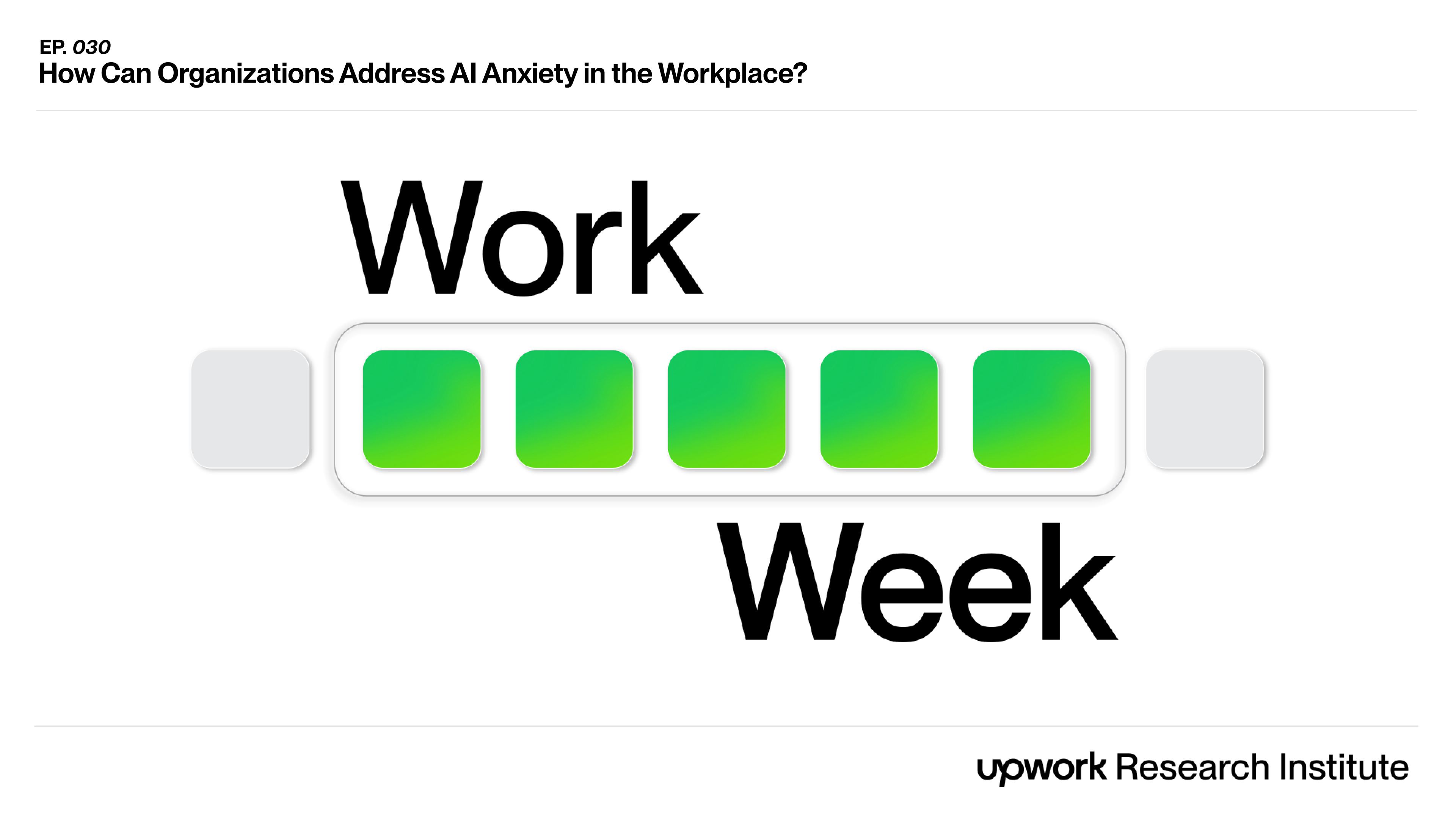
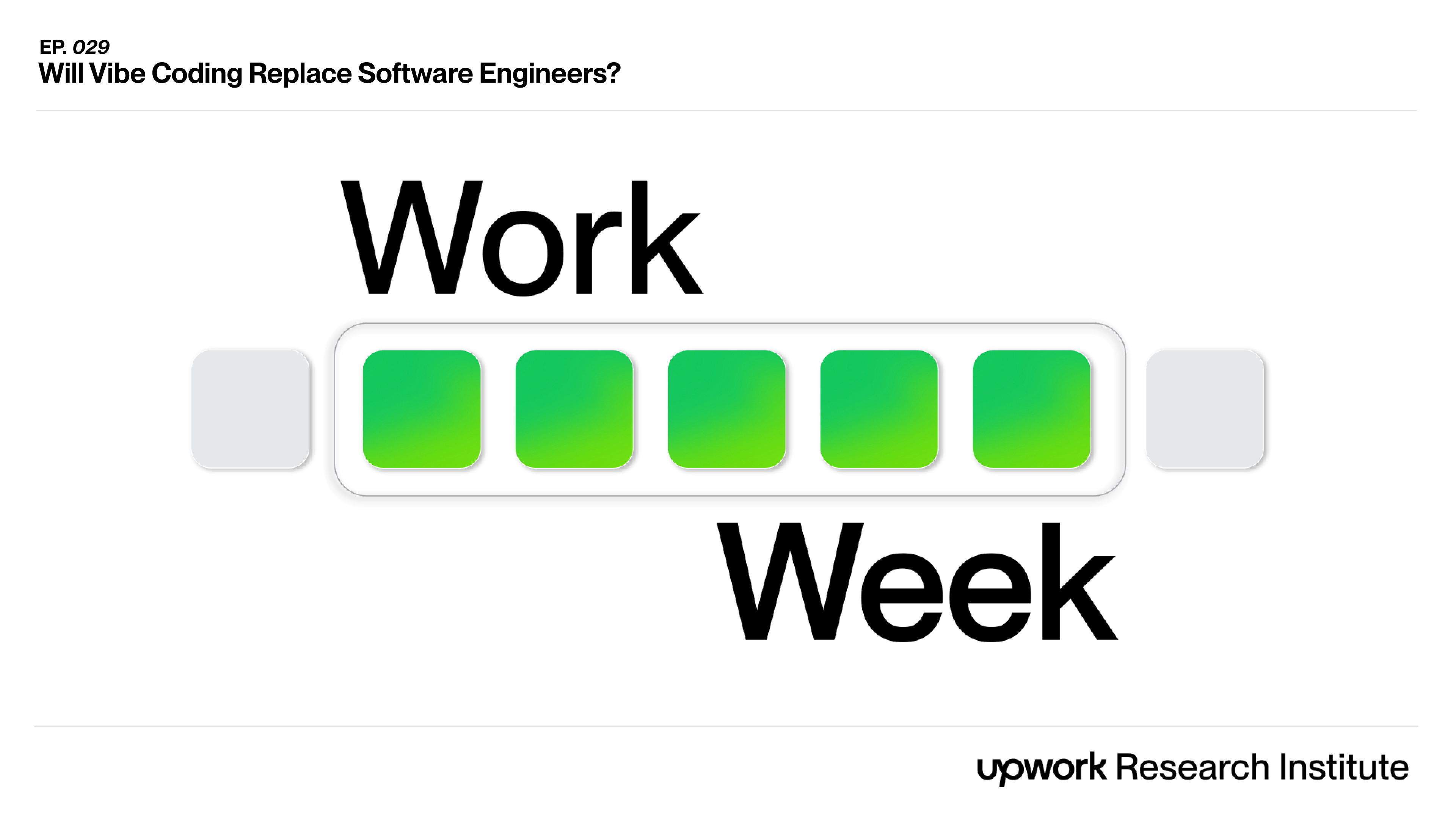
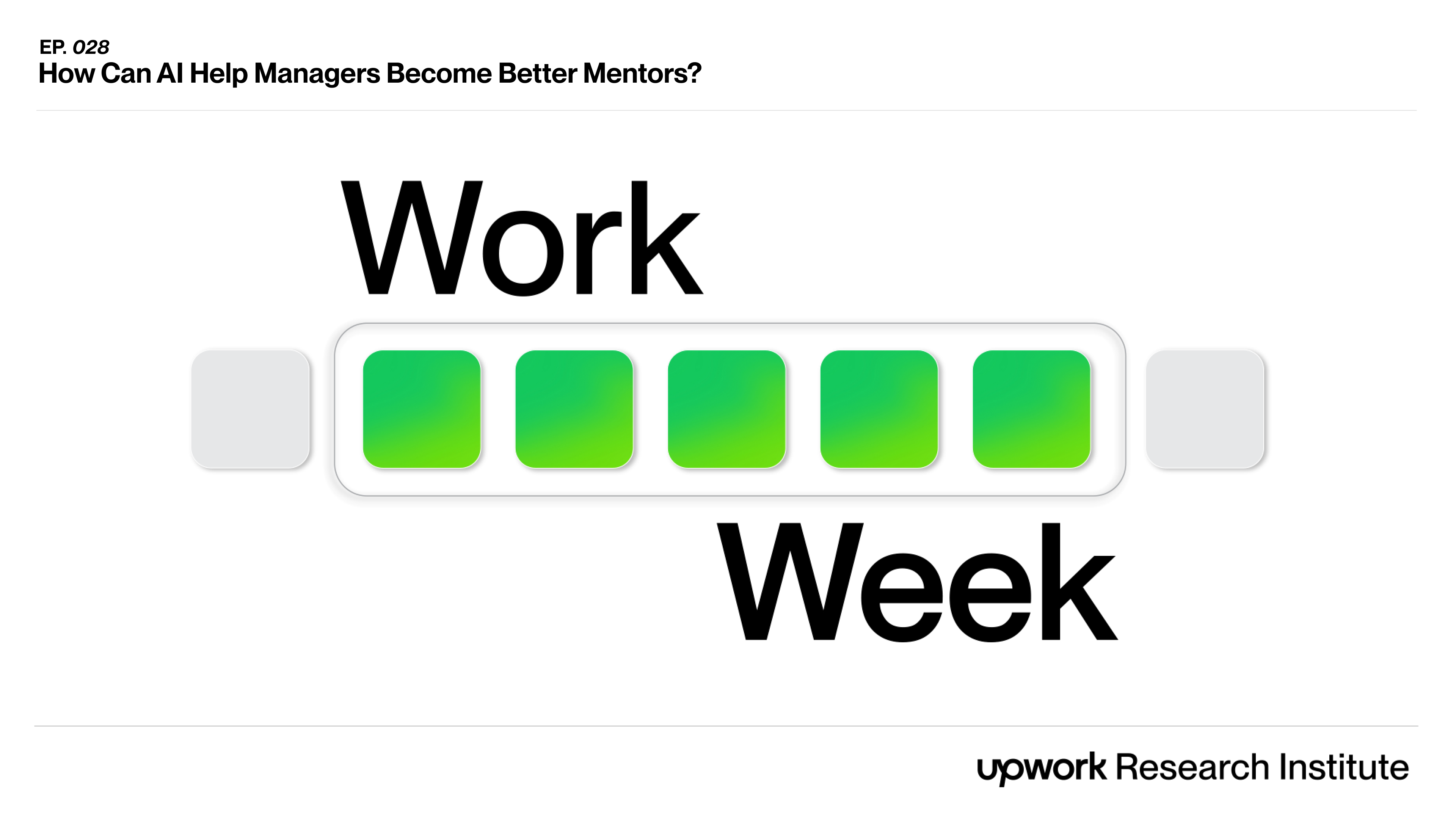

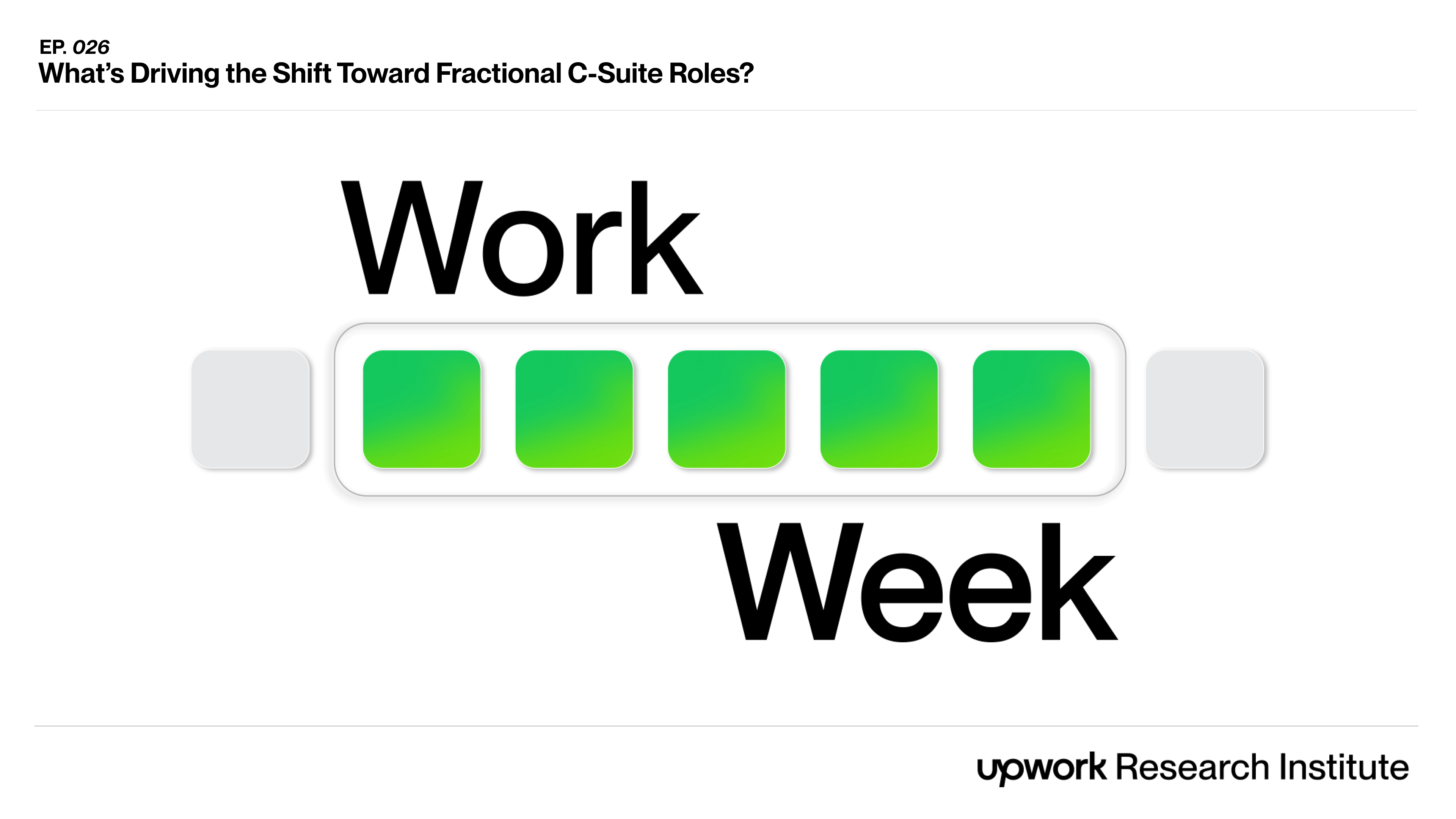
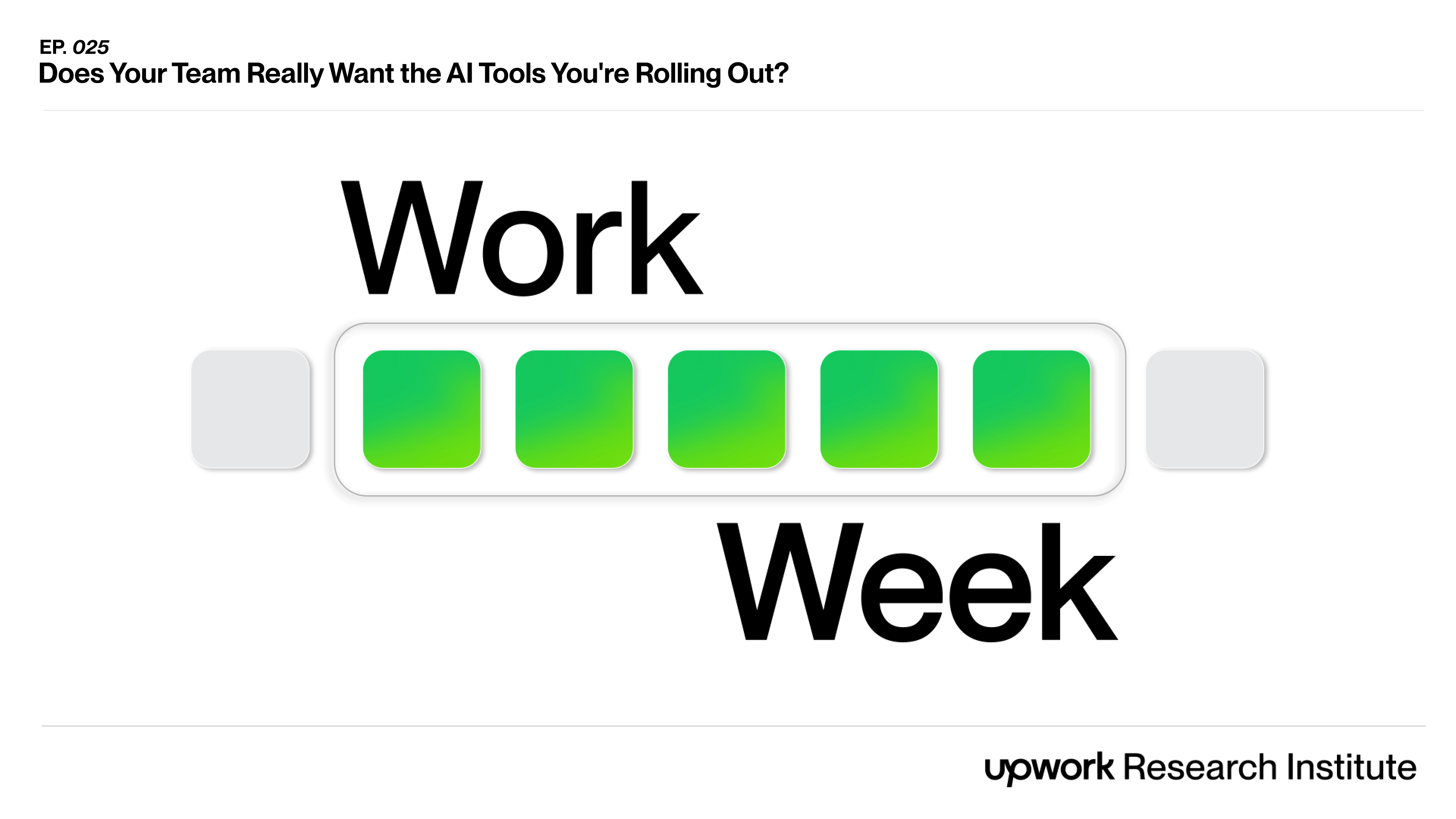
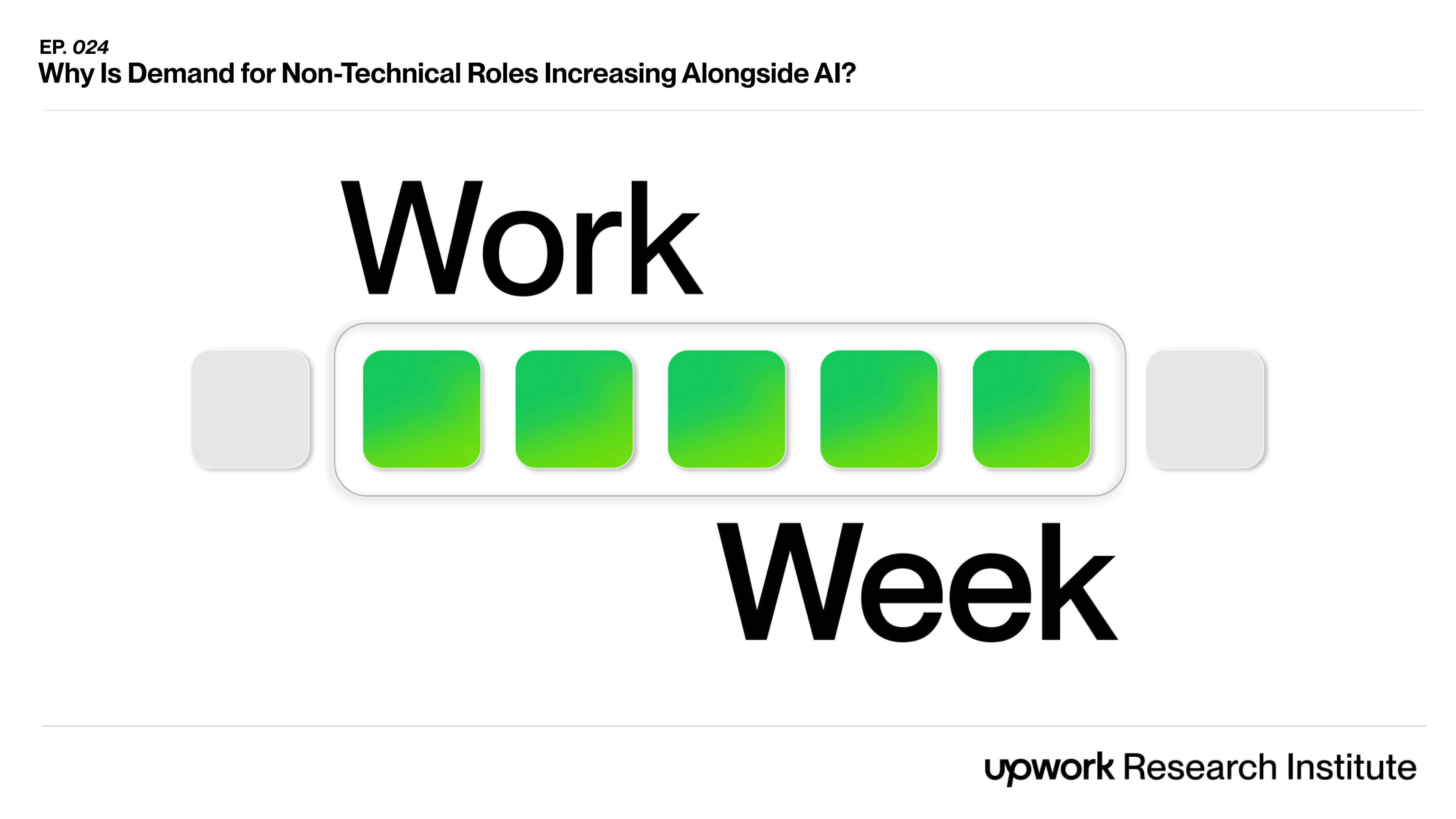
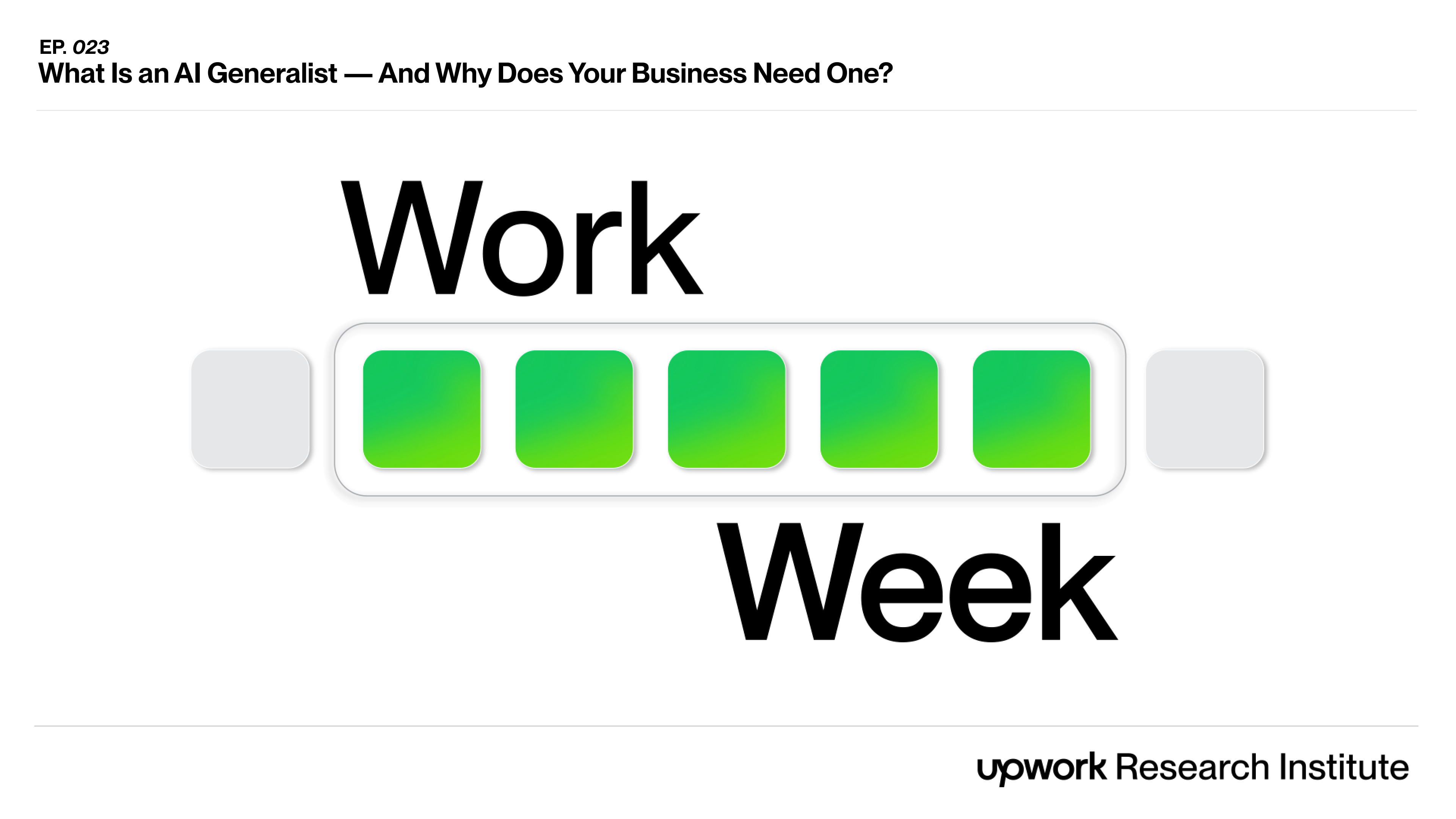
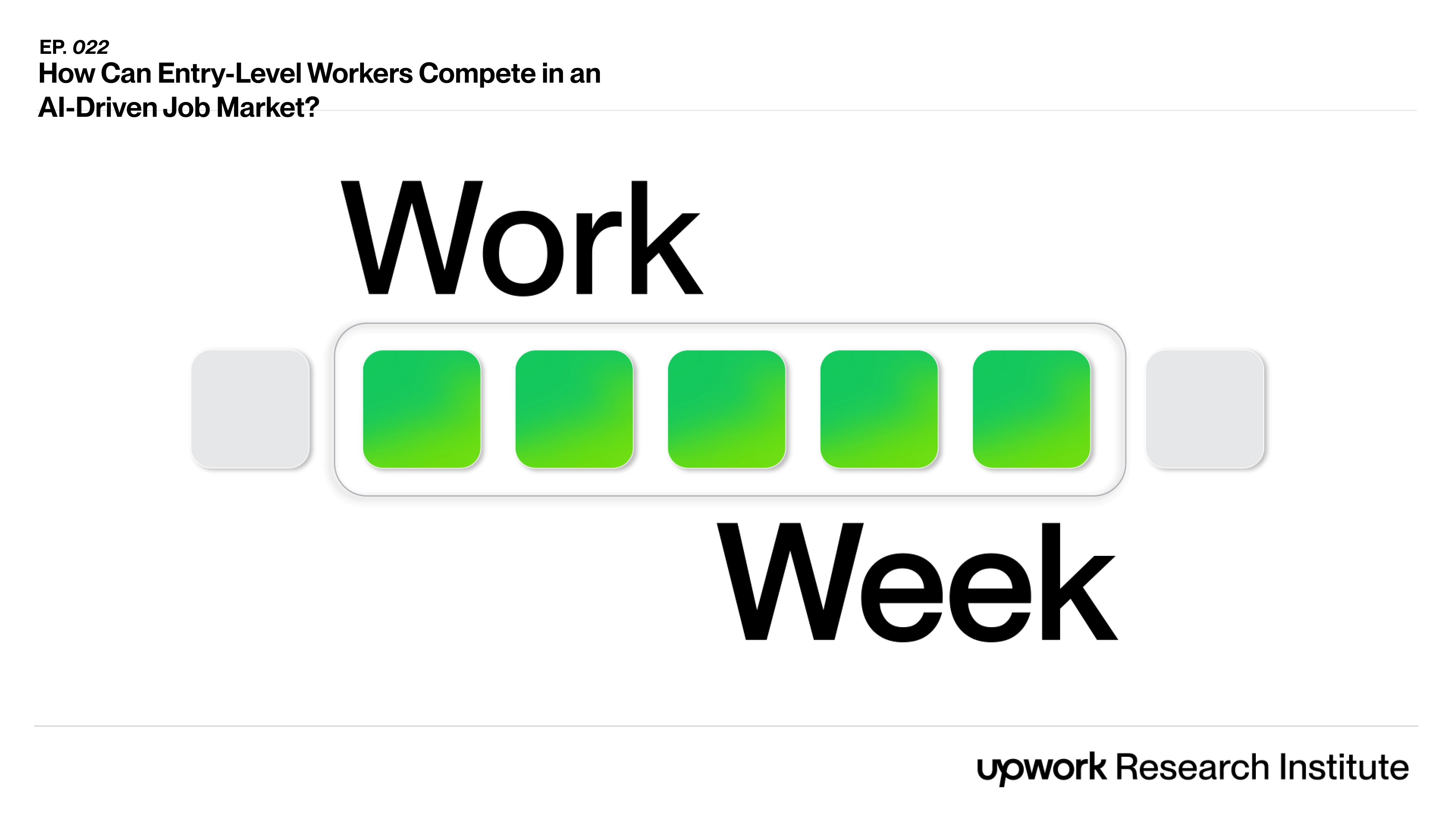

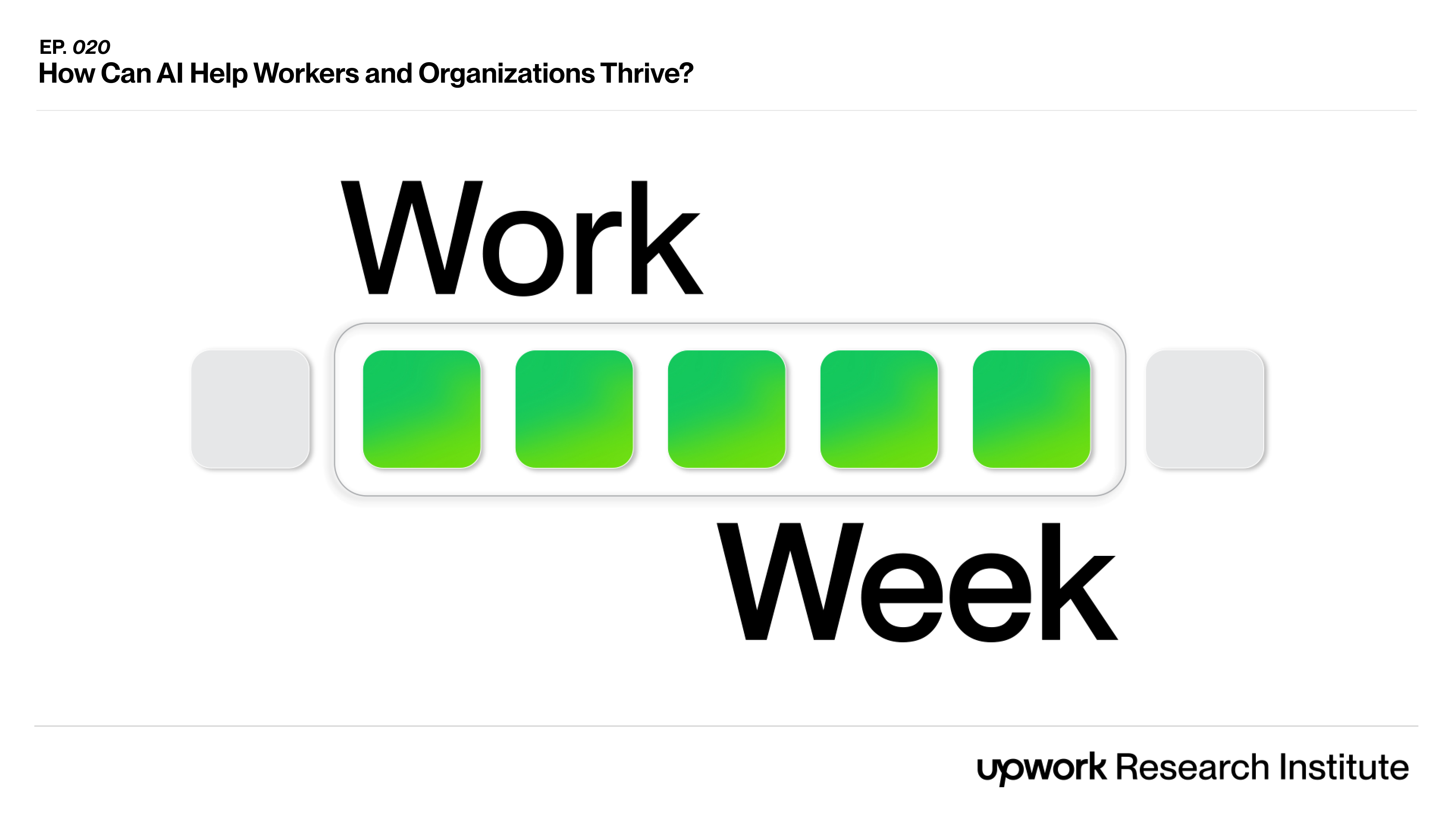
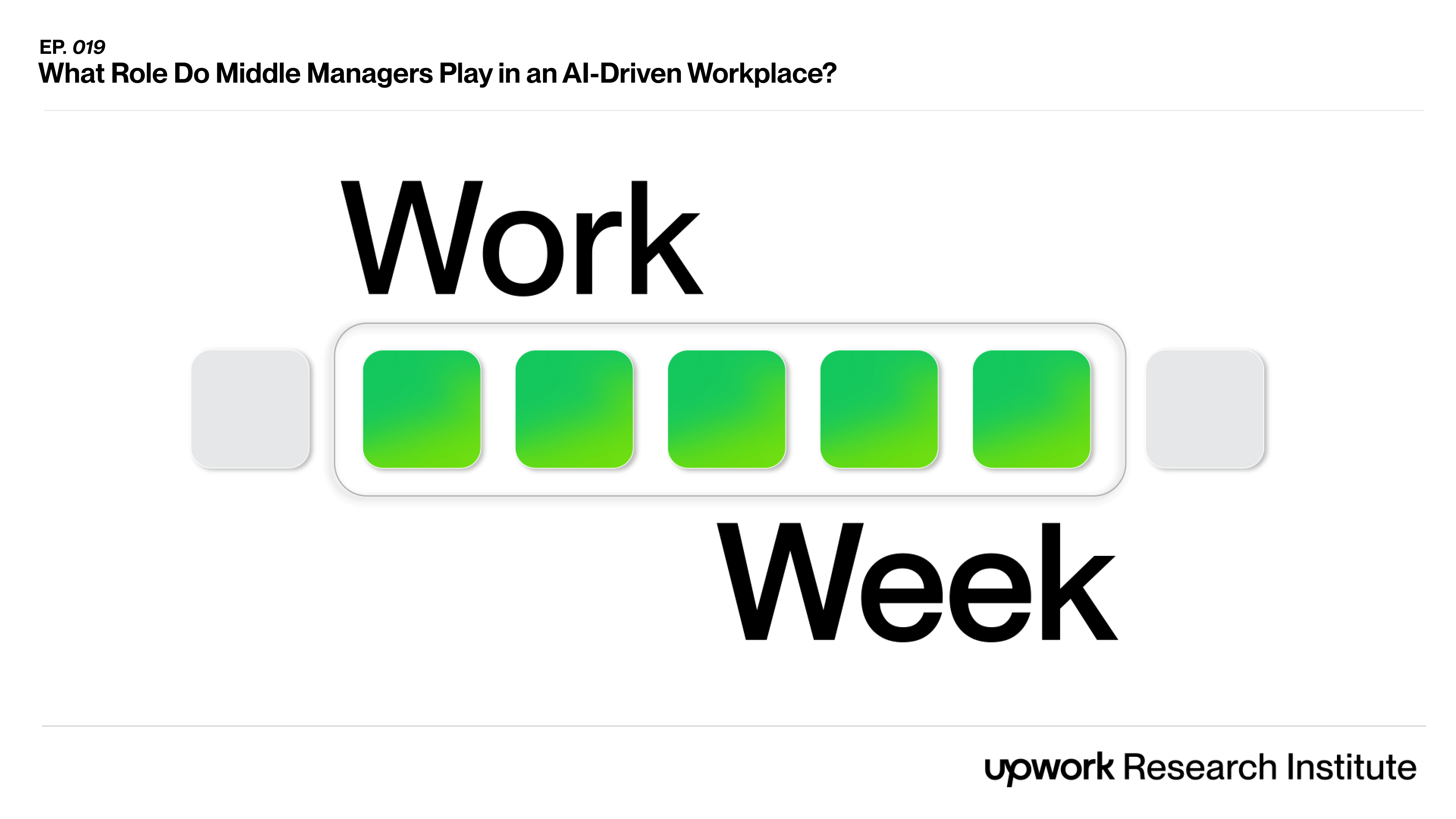
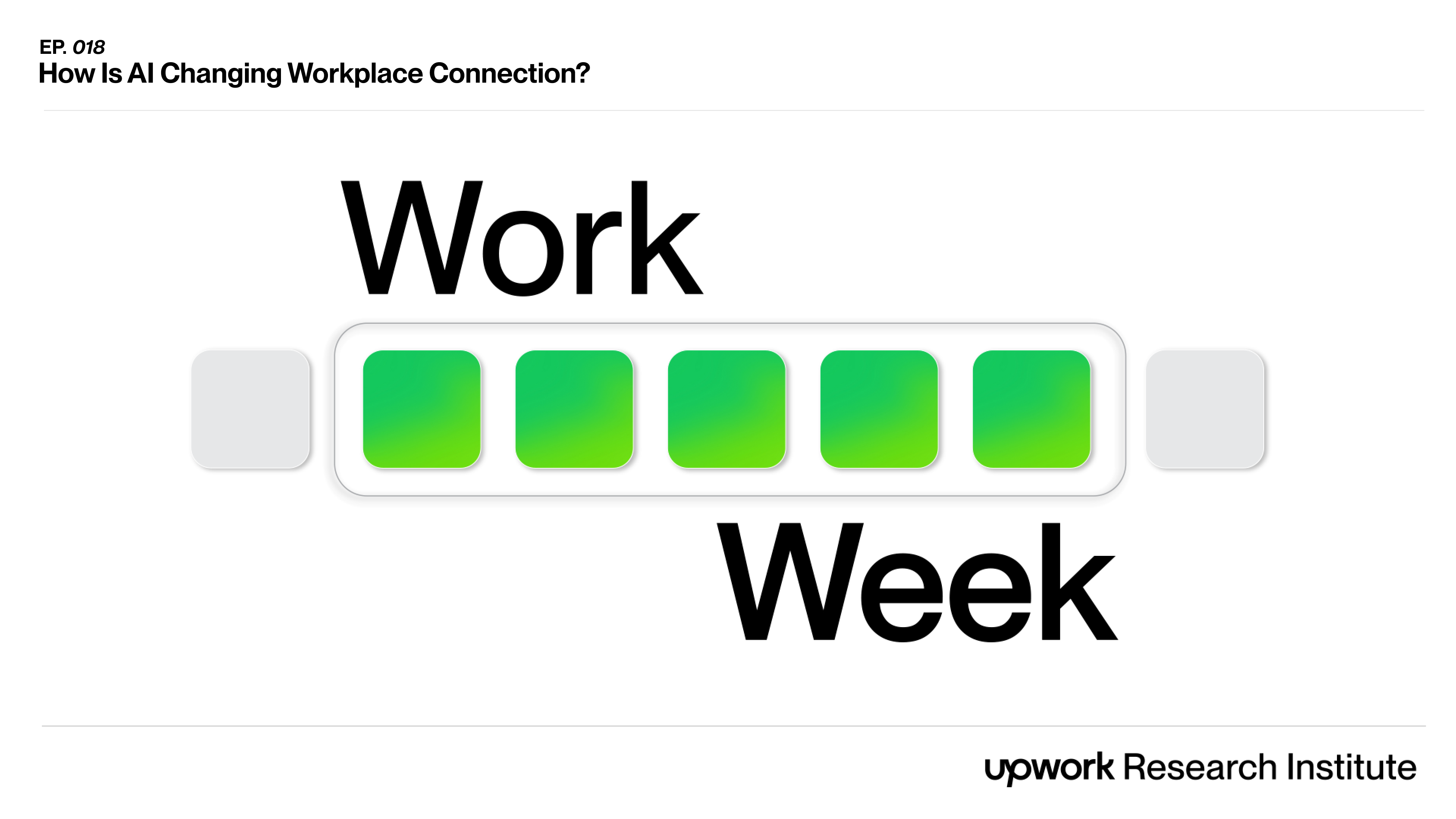

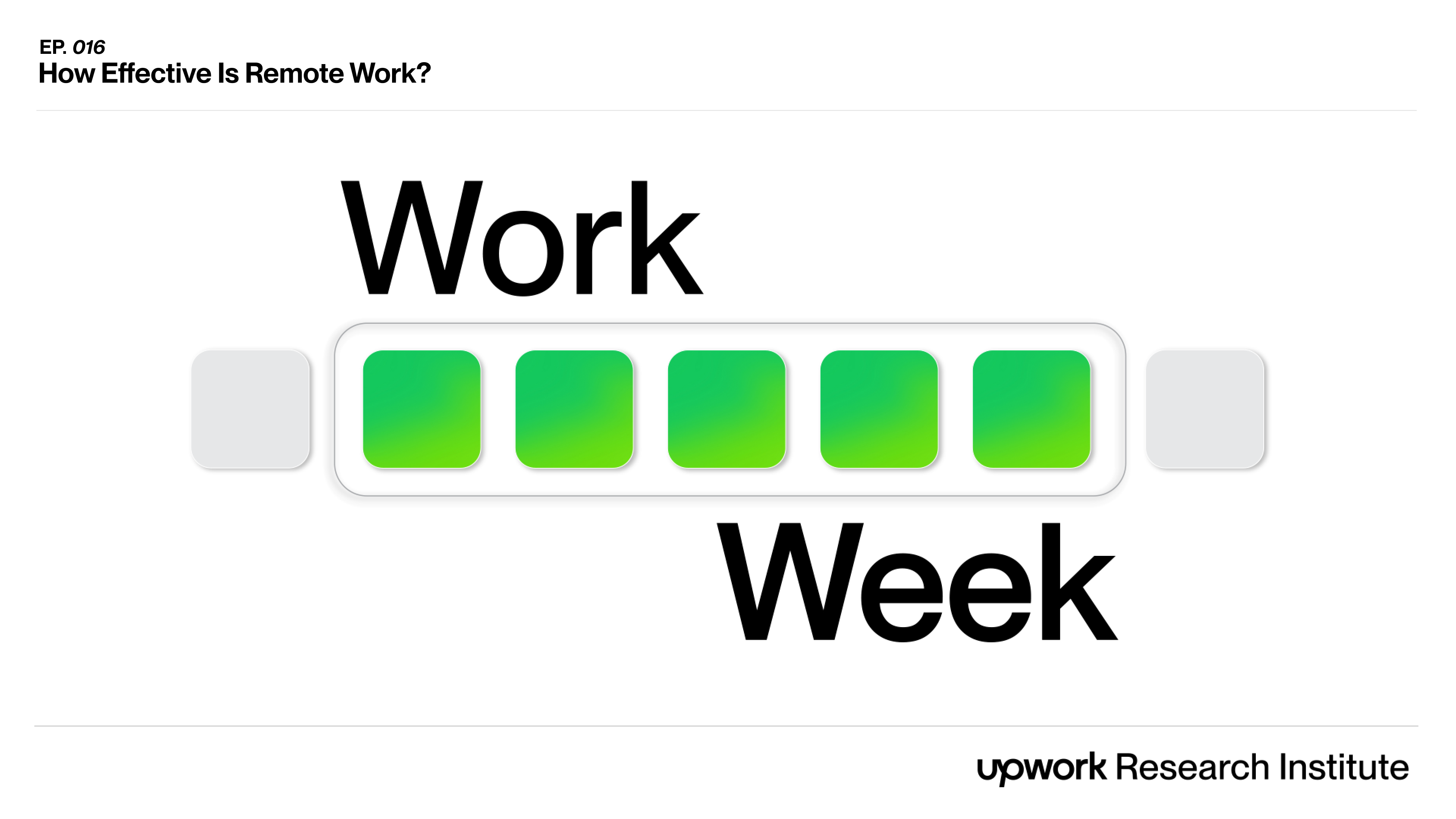
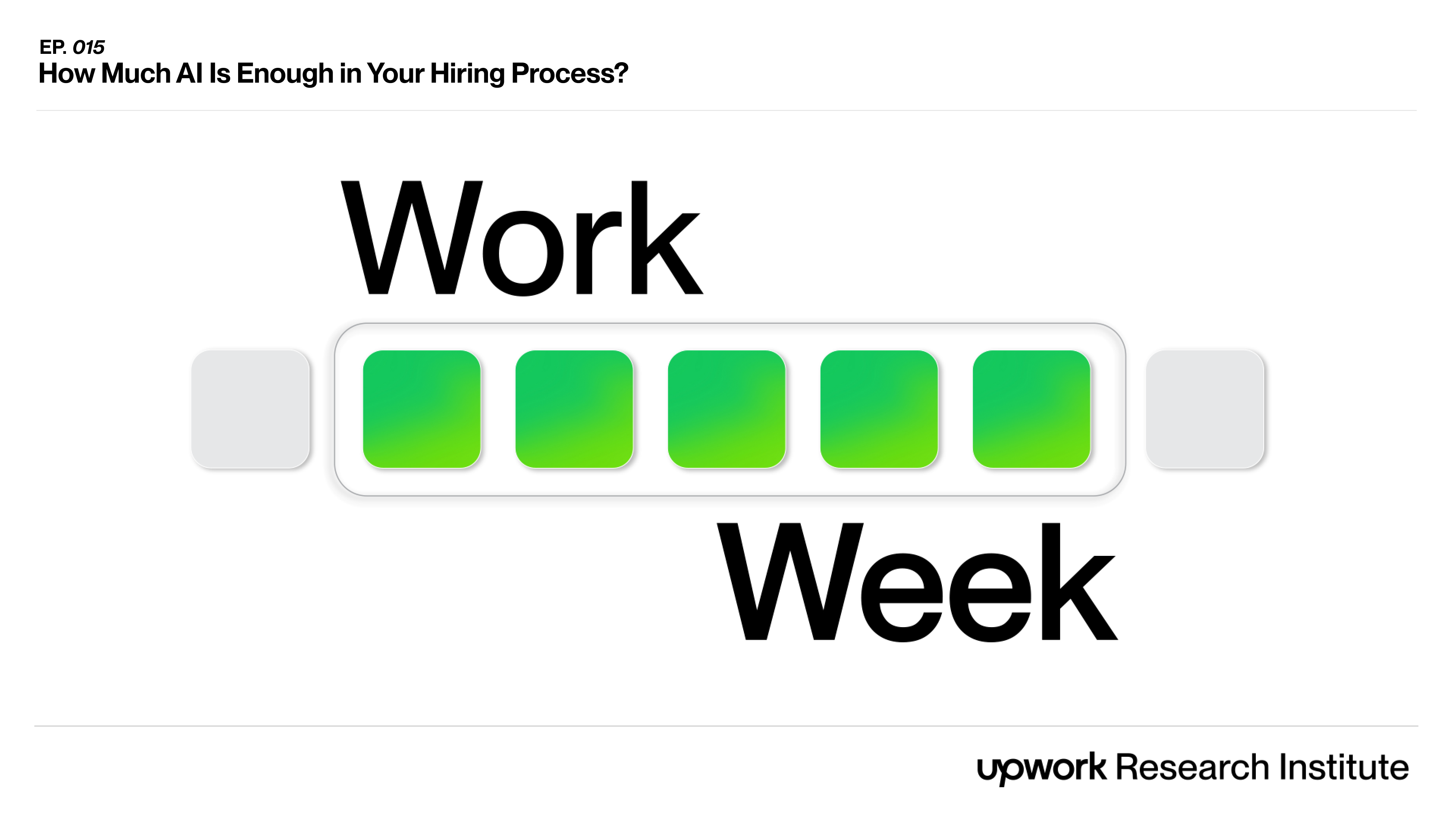

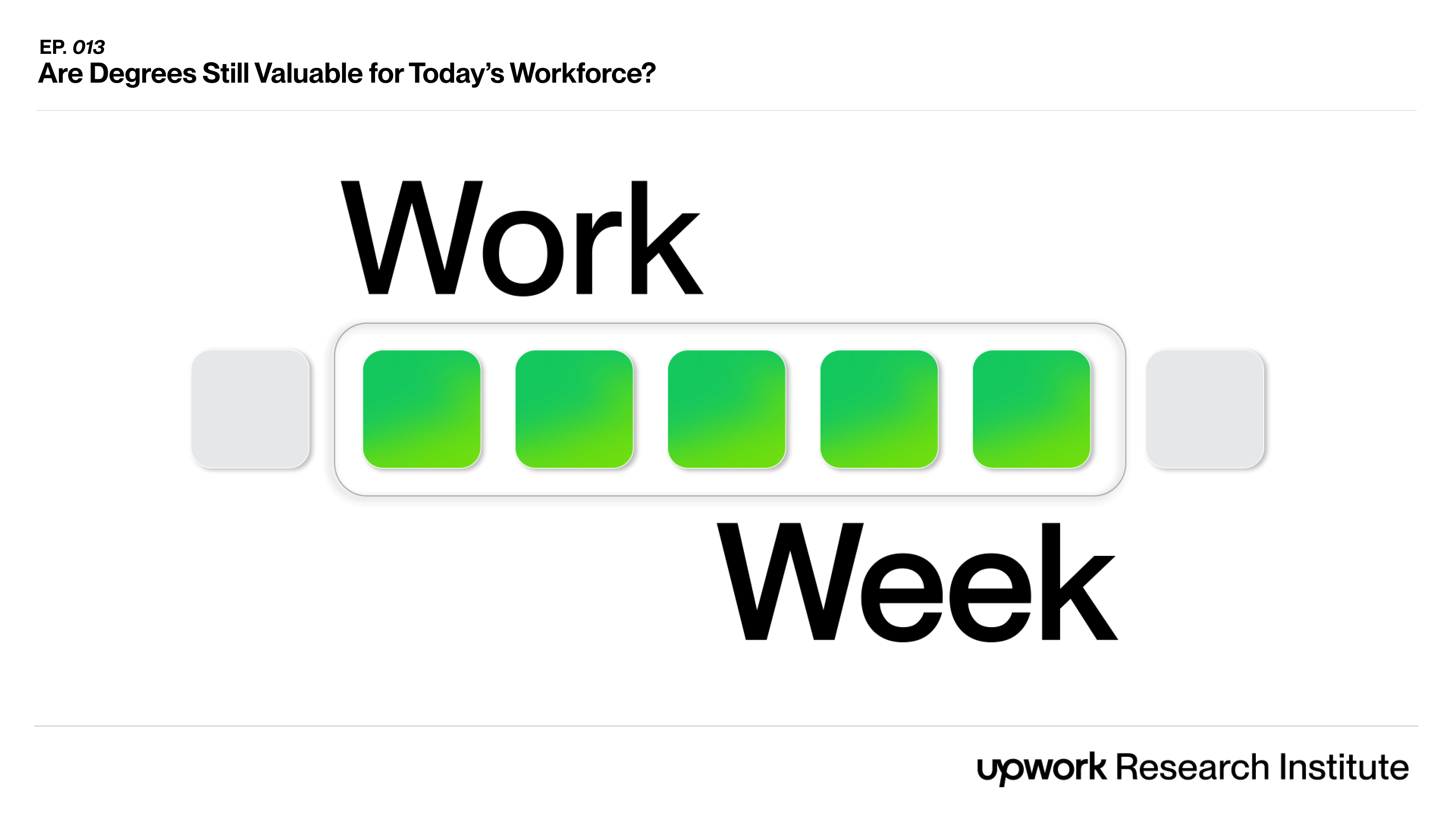
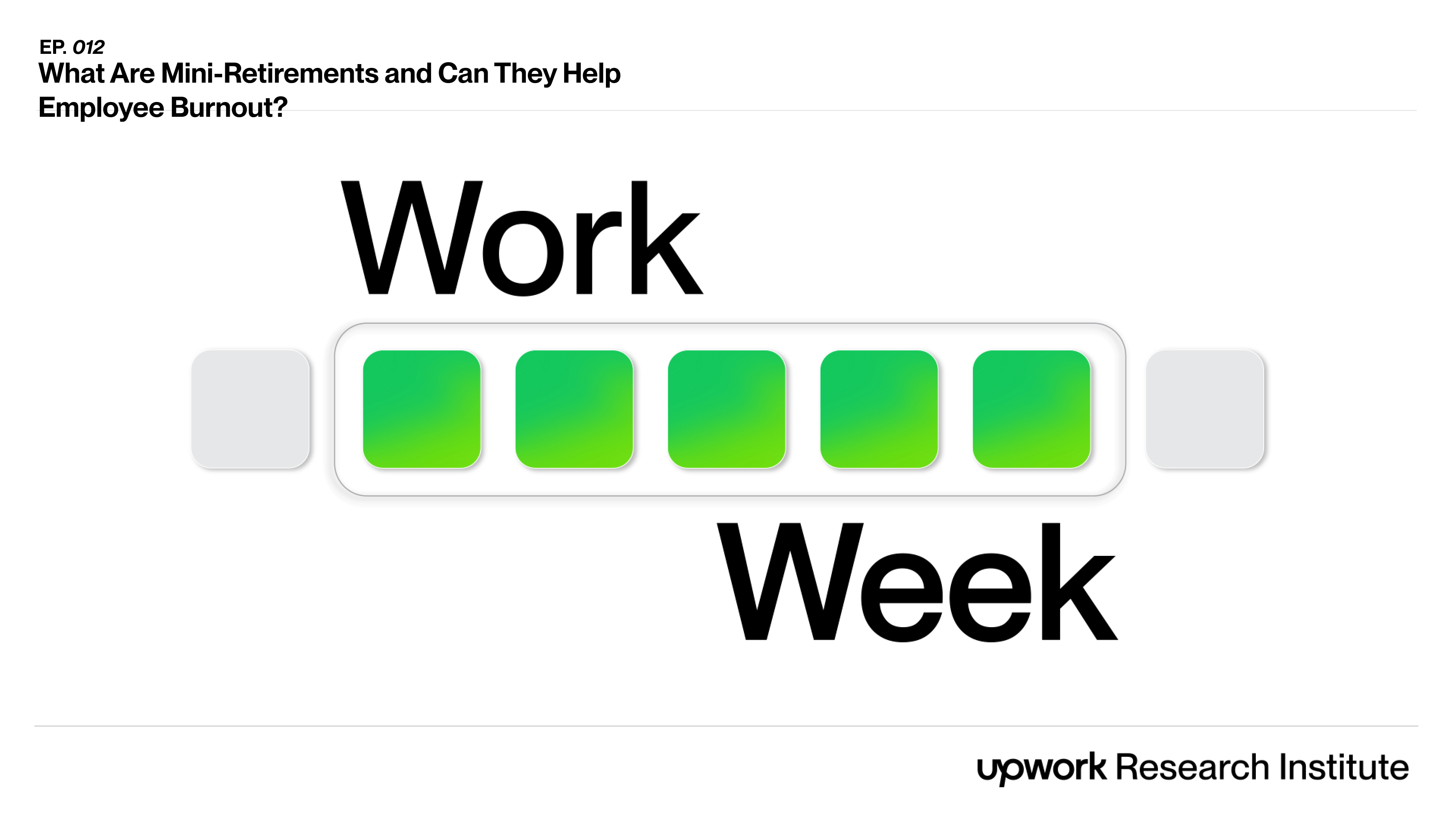
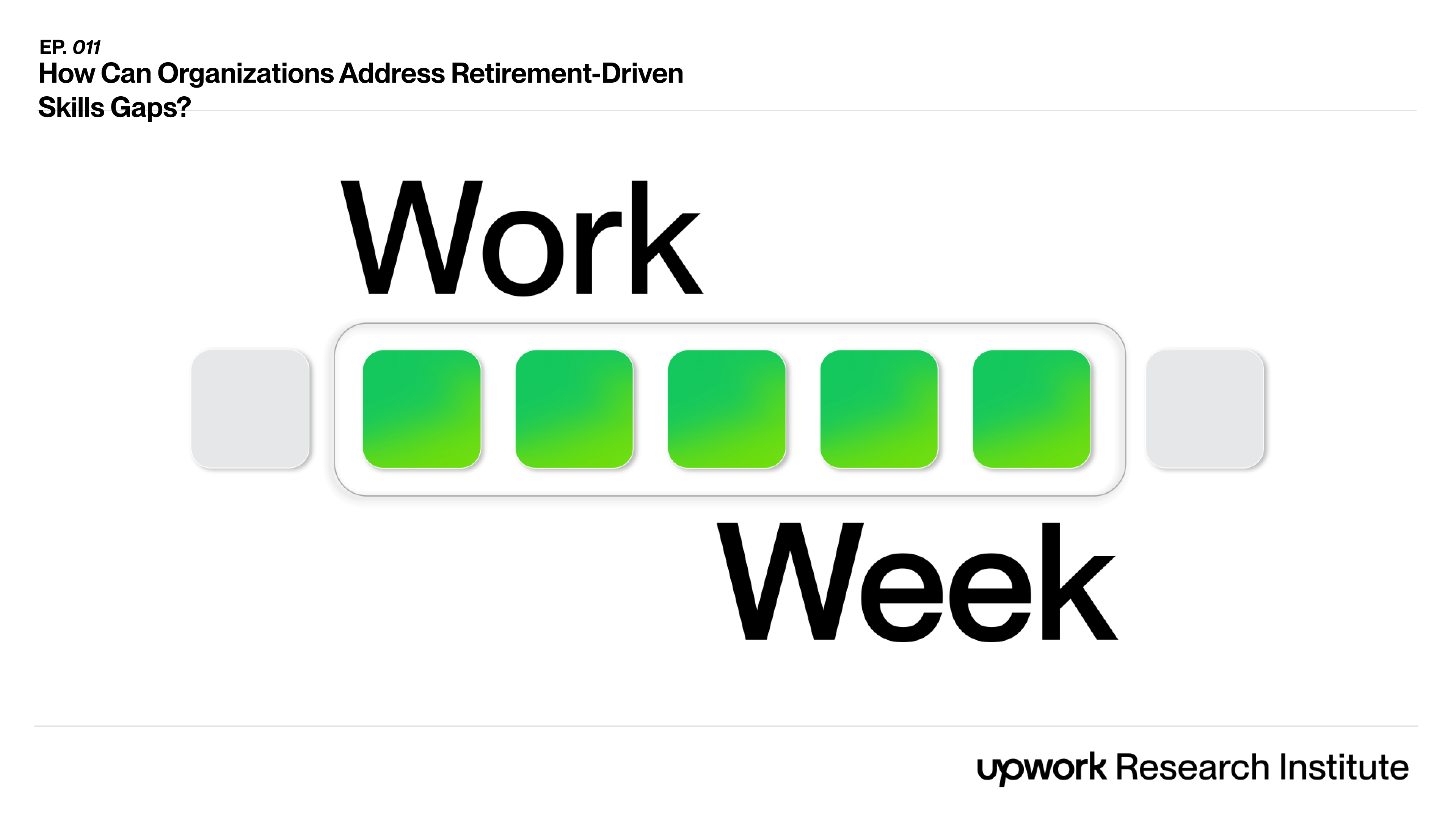
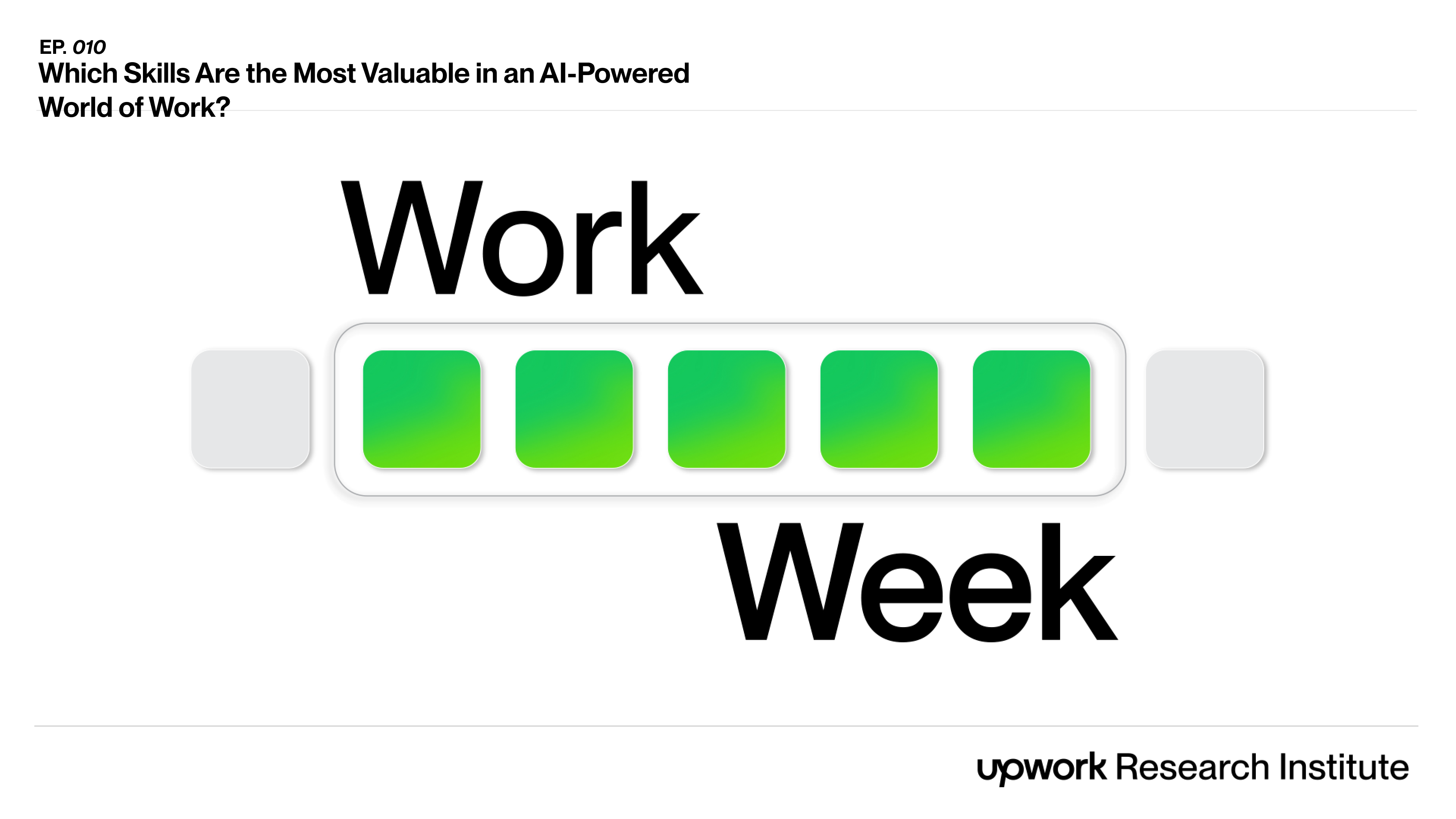
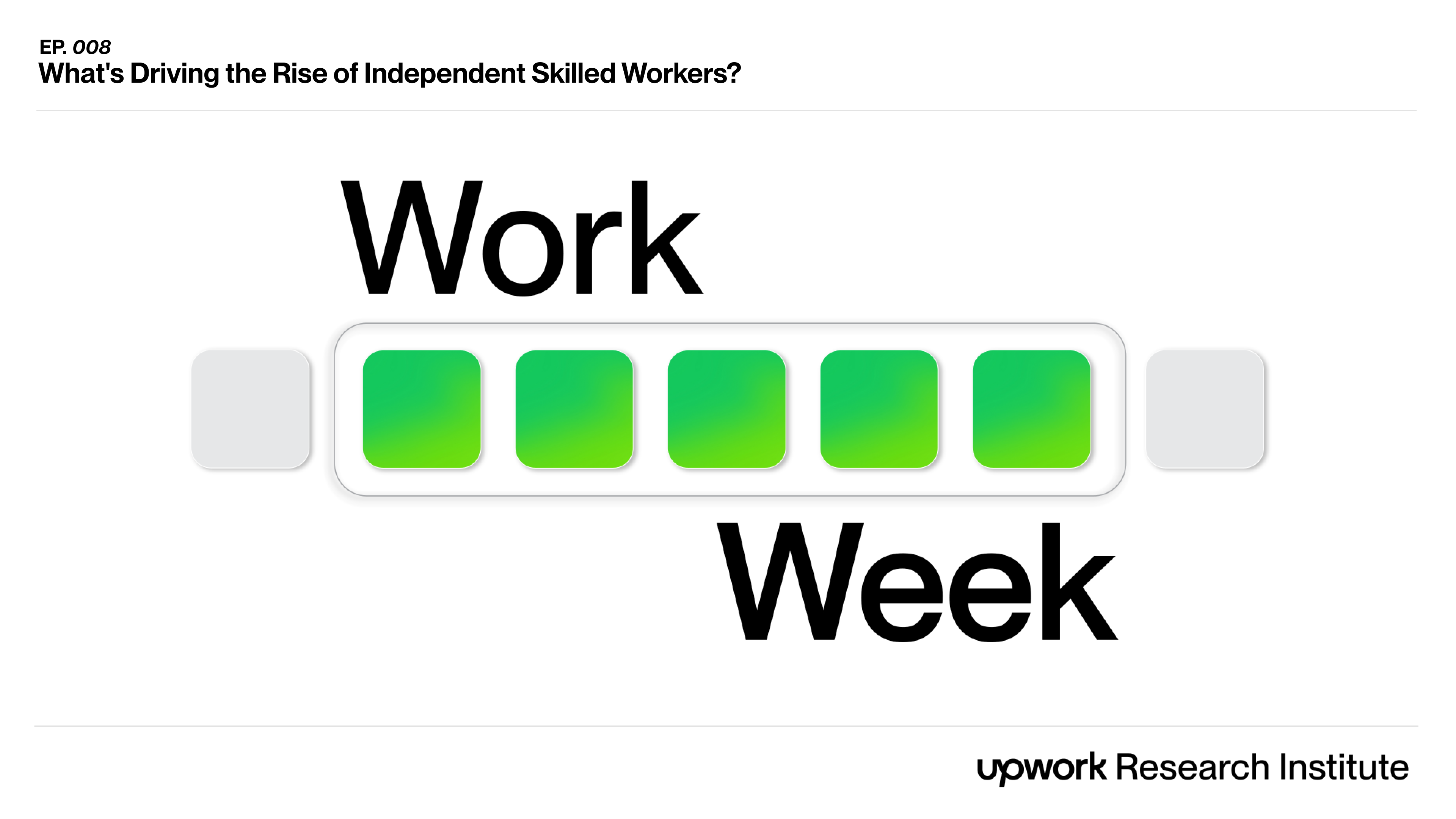
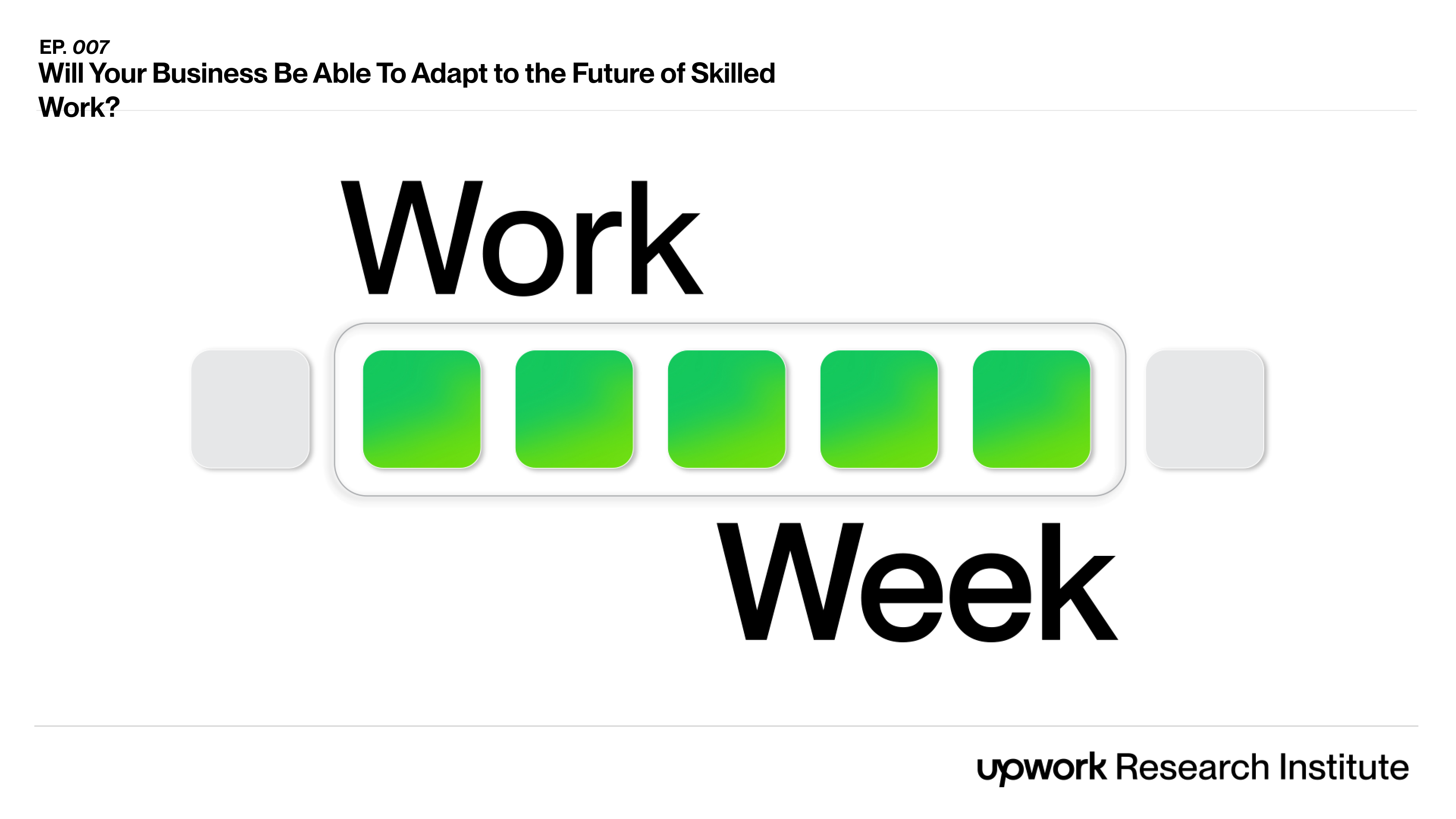
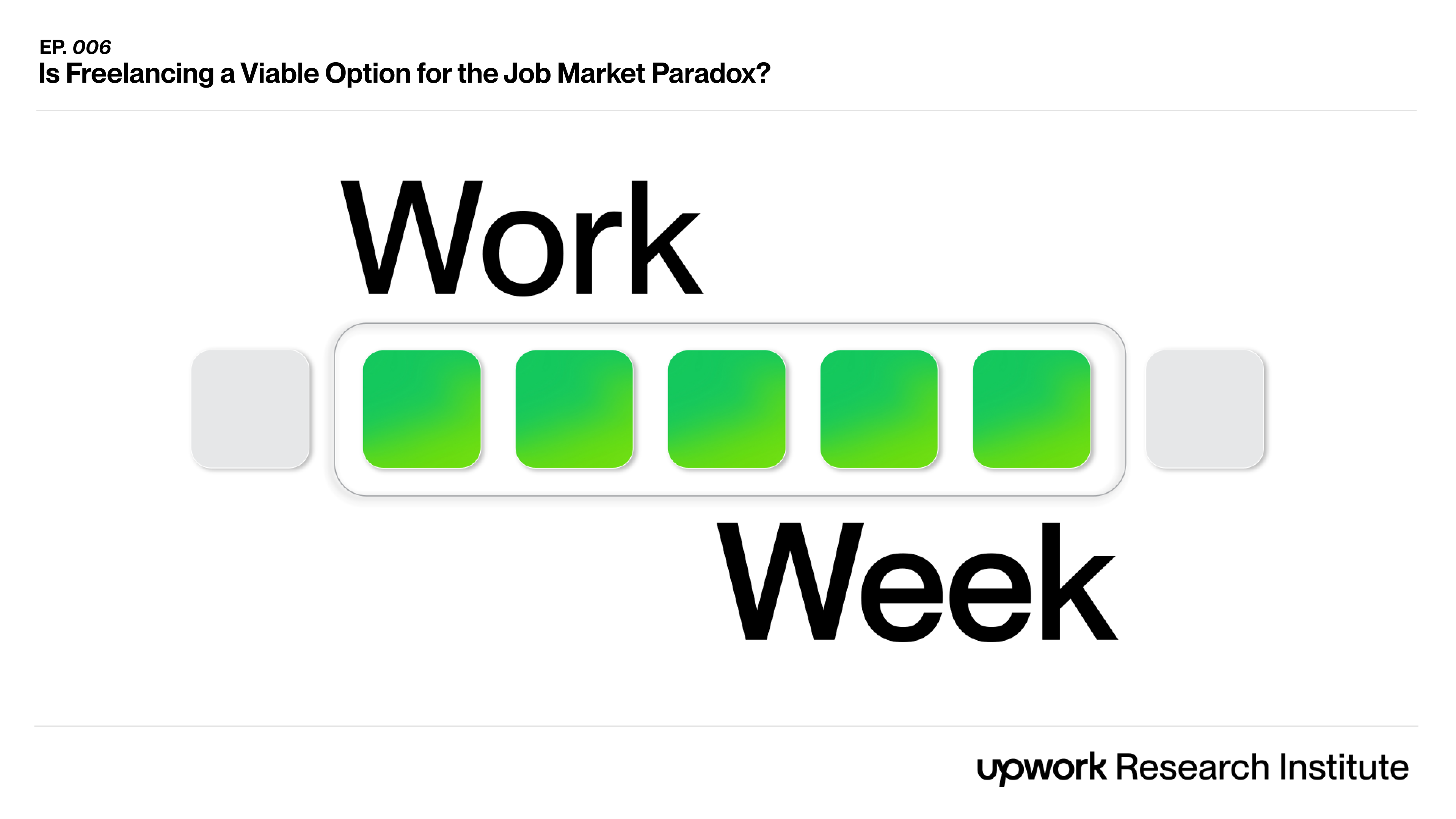
.png)
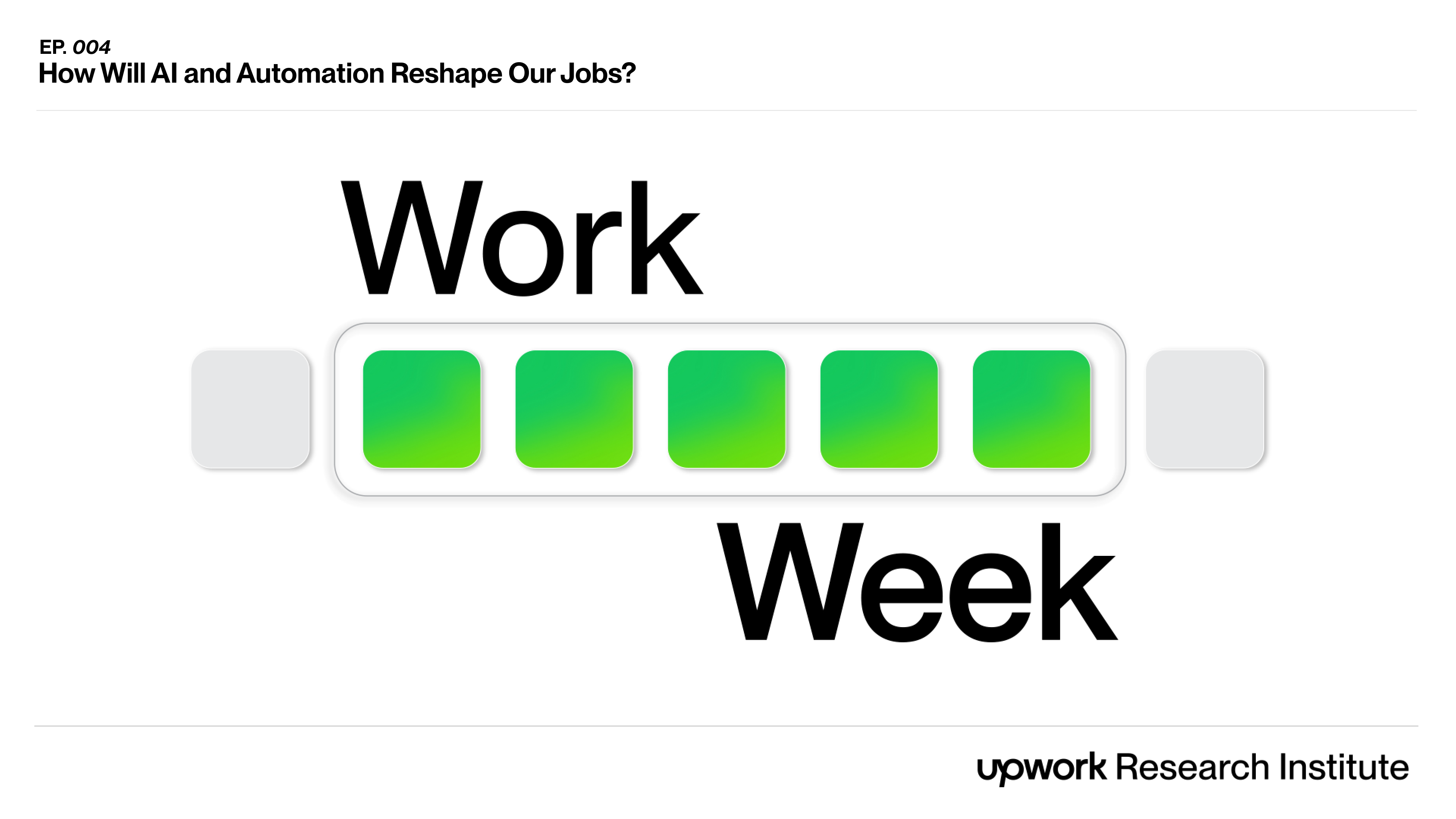

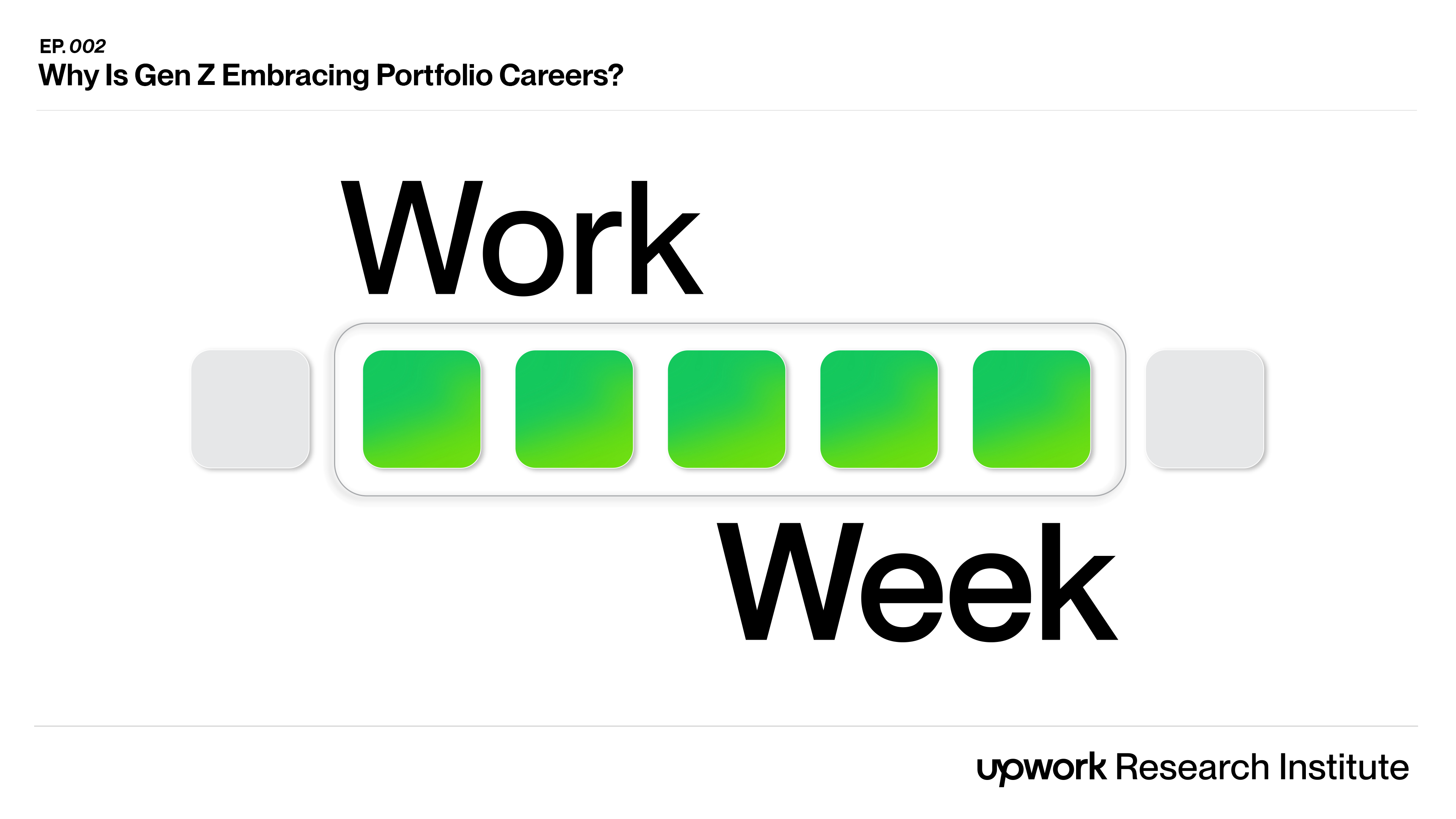
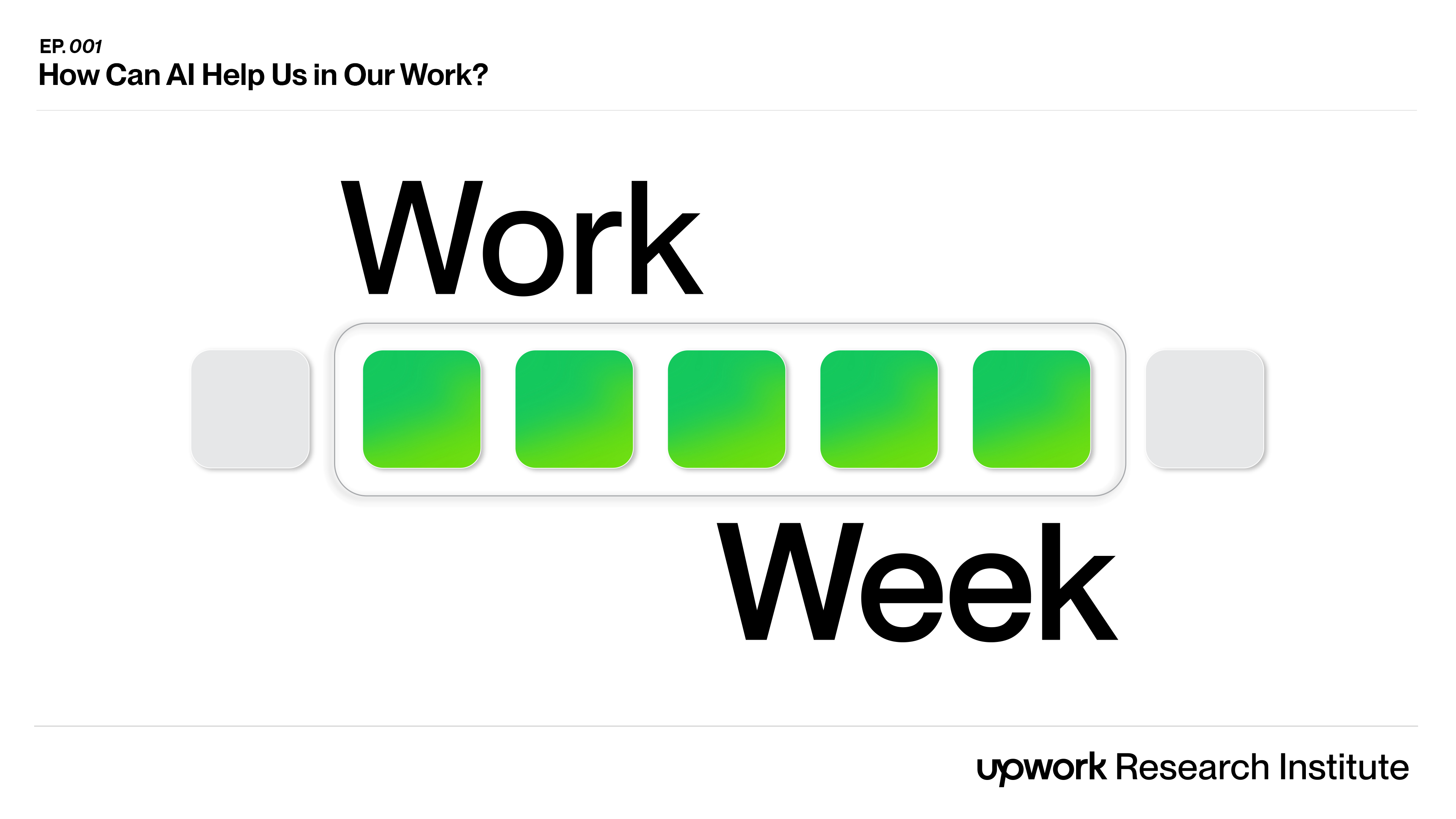
.jpg)